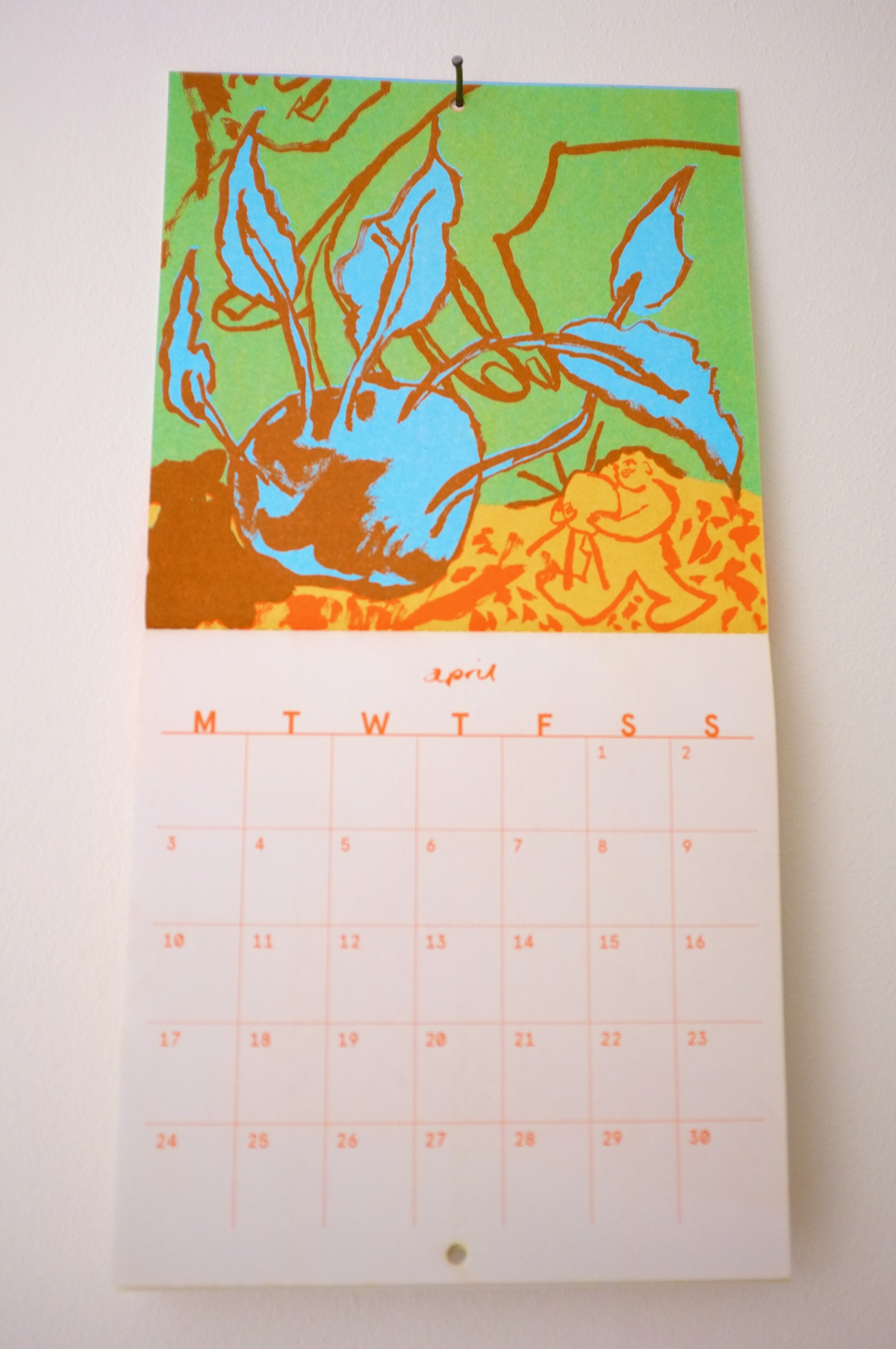— 2020 in review
I read Jay Springett’s 2020 retrospective and thought I might have a go at writing one too.
Read moreI read Jay Springett’s 2020 retrospective and thought I might have a go at writing one too.
Read moreA couple of months ago, we decided that all co-op members should move to a four-day week at no loss of pay. We think it’s a really important demand, an idea whose time has come, and we wanted to try it out for ourselves. So far, it’s been super successful. We all feel happier and like we have a better work-life balance, yet we’re just as—if not more—productive. I’ve written a bit more about why we did this over on the Common Knowledge blog.
For myself, I wanted to have a day off for my own practice, to write and to relax. I also thought that I could use the time to get more involved in the climate justice movement. I immediately went along to a few different remote organising meetings, but they just made me feel even more burnt out. It was too close to my day-to-day work, and I just didn’t have the energy to spend my free time sitting on the dreaded Zoom.
I started looking for an alternative way to spend my day off. I’ve always loved growing plants, and for a while I’ve been trying to learn more about regenerative farming, foraging and food sovereignty. I looked for a community garden near me and found the Golden Hill Community Garden. Luckily, their volunteer day falls on a Wednesday, which I’d already decided would be my day off.
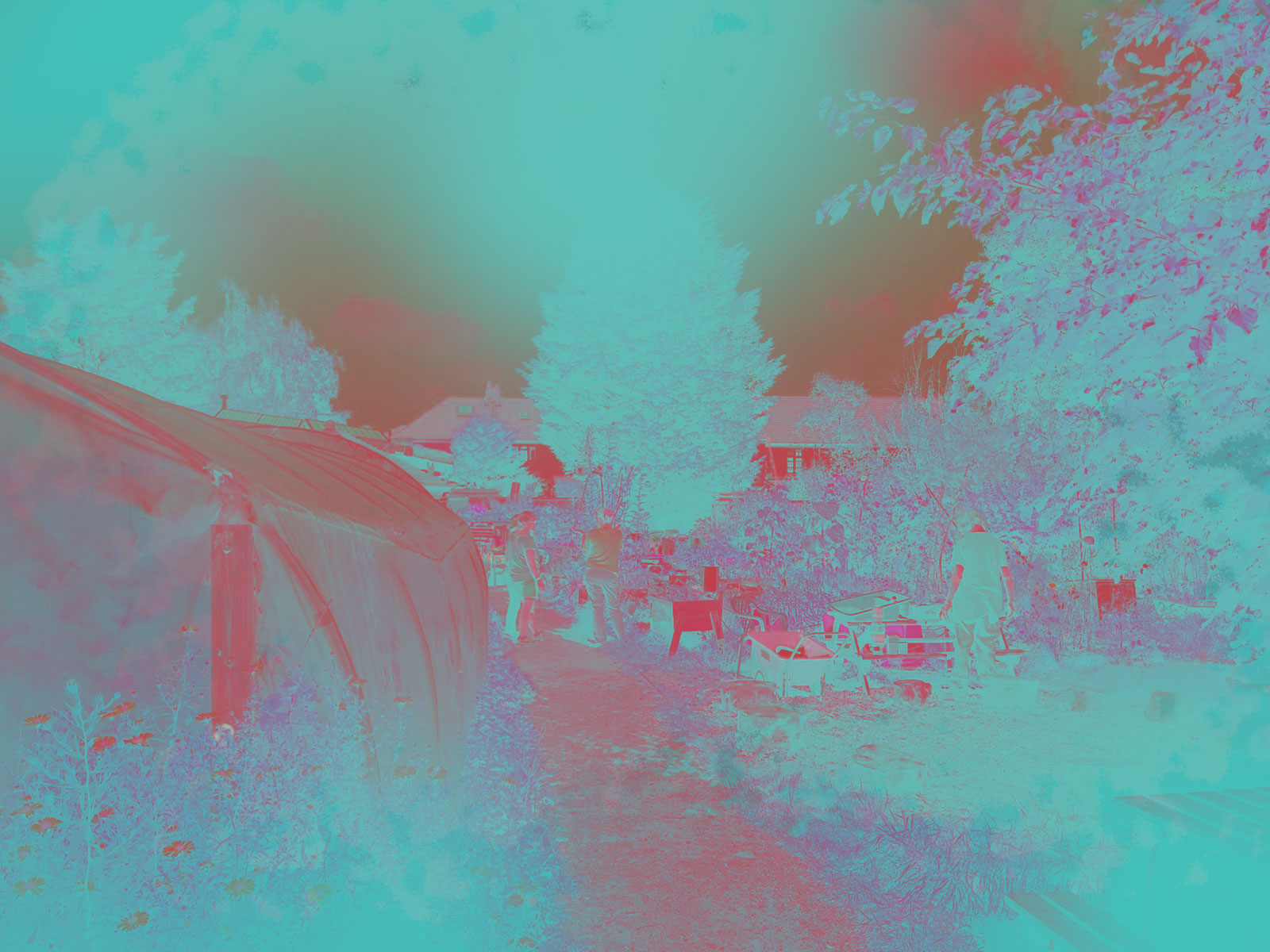
Spending some time helping in the garden has been so restorative for me. I joined in late summer so I got to share in the abundant harvest: each week we harvest some of the veggies and take them home afterwards. They taste so much better than anything you can buy. I (really) love weeding, I love being outside all day, I love learning about all the different plants and how to care for them.
One day Lucy, the community project worker, was talking about how much she likes to flip through the daily log from the previous decade, because she can read about her and the volunteers doing the same activities they do every year: harvesting this plant, maintaining this part of the garden. There’s something reassuring and beautiful about having deep roots in one place, knowing that the same cycle will repeat year after year. It probably seems obvious, but as someone who moves around a lot, I’m really starting to see the appeal in this.
There was actually an article about Golden Hill in The Guardian the other day, about the rise of community gardens. Lucy describes community gardens as “revolutionary in a quiet way”. Lately I’ve been thinking about this a lot — how important it is to find the right type of activism.
I spend everyday at work thinking about grassroots activism (or organising or social change or whatever you want to call it) in some form. Yet for some reason, I always feel guilty, I worry that I’m not doing enough or that I’m a fraud… all that good stuff. I have a lot of eco-anxiety. And I’ve read about how eco-anxiety is problematic and white, so now I have guilt about my my anxiety too. Unsurprisingly, this is exhausting and completely unsustainable. At best, it’s silly, and at worst, it’s counterproductive. You can’t contribute to a movement if you’re burnt out.
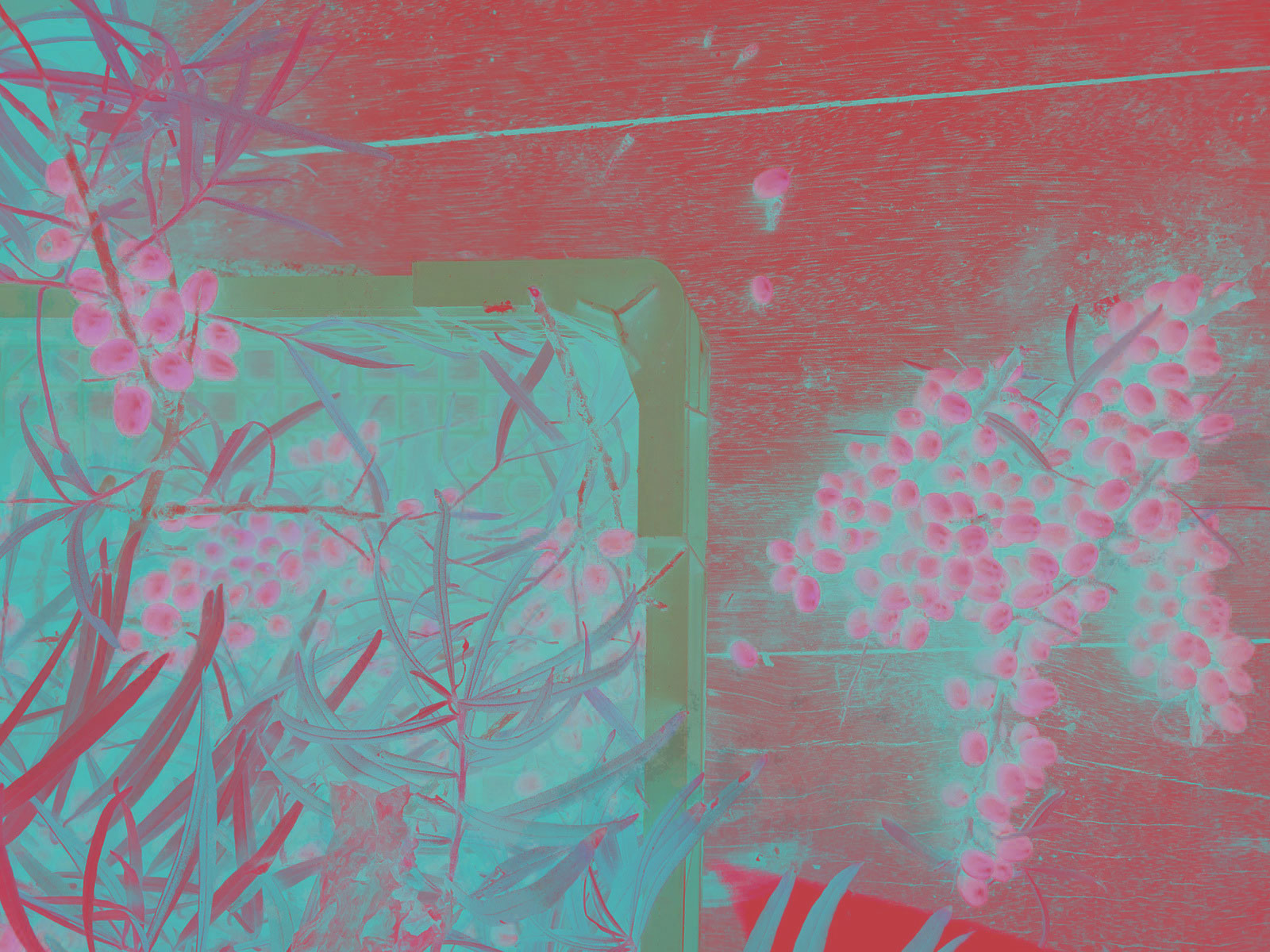
Helping out a community garden helps me recalibrate, slow down, spend time away from my computer and see things from a different perspective. In some ways, it feels like an antidote to thinking and reading and talking and worrying about climate change on a daily basis. Rather than thinking about global crises, economic levers, parts per million, I’m thinking on a hyperlocal scale, about the soil and plants right in front of me.
There is such urgency in the multitude of crises we face, it can make it hard to remember that in fact it is urgency thinking (urgent constant unsustainable growth) that got us to this point, and that our potential success lies in doing deep, slow, intentional work.
— adrienne maree brown, Emergent Strategy
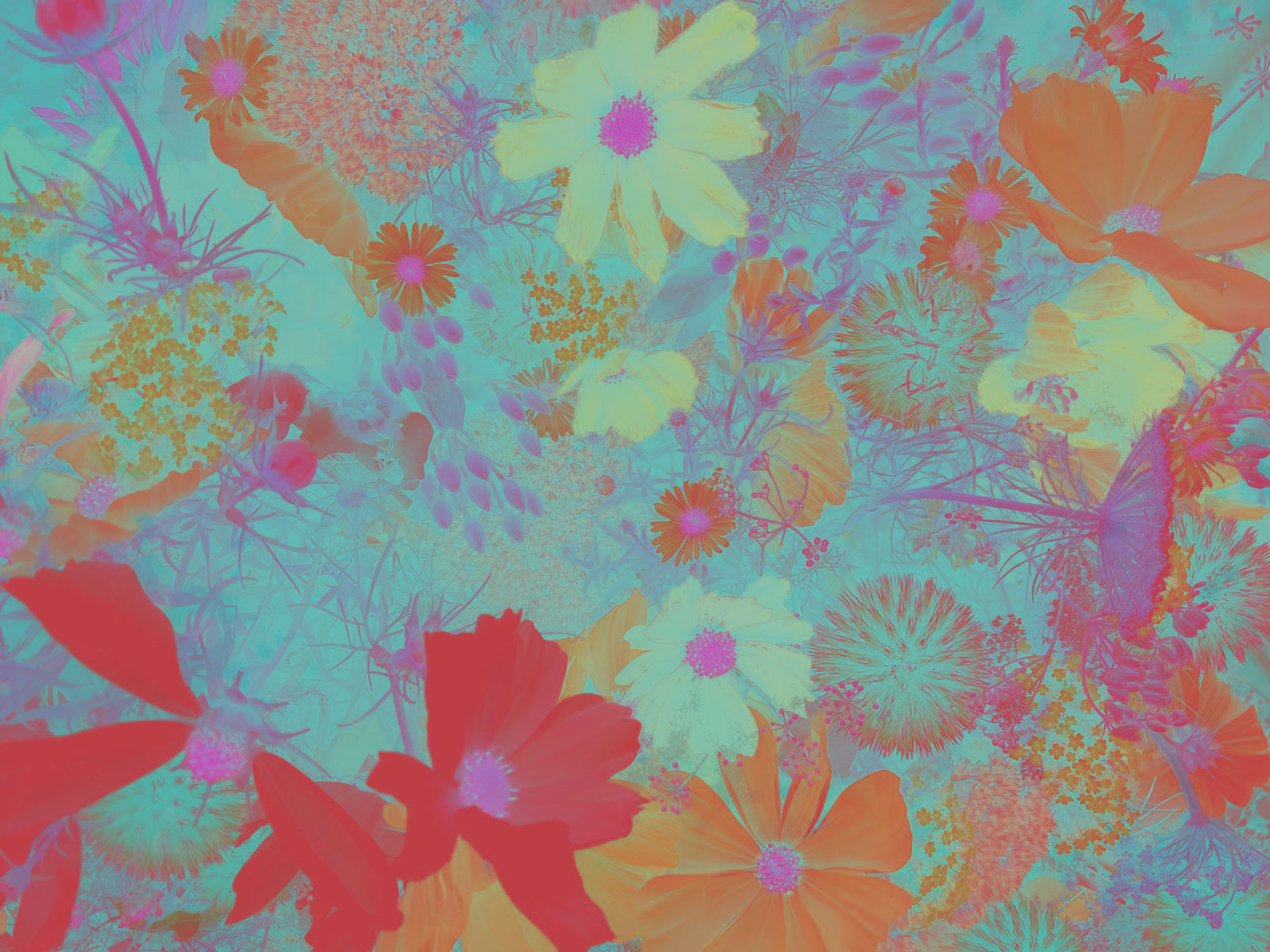
With something as unimaginably huge as climate change, the only viable response is through collective action. However, this can take so many different forms, not just direct action or lobbying. This isn’t to say those things aren’t vital – they are. But everyone can find a role that suits their own particular skills, interests, capacity and strengths. Each role is just as important as the next.
Lots of people have made different attempts at categorising these different roles. In The Shock Doctrine of the Left, Graham Jones describes a four-part framework of mutually reinforcing organising strategies: Smashing, Building, Healing and Taming. Similarly, Bill Moyer identifies four roles in his Movement Action Plan: Helper, Organiser, Rebel, Advocate. I think I’ve always been most interested in contributing by “building” viable alternatives like cooperatives and community groups.
We can do, be, and create whatever we want to see, knowing ours is one effort in the midst of many, and the multitude is where our power lies.
— adrienne maree brown, Emergent Strategy
The ultimate, hidden truth of the world is that it is something that we make, and could just as easily make differently.
— David Graeber
Last weekend we visited How We Live Now at the Barbican, an installation exploring the work of the Matrix Feminist Design Co-operative.
Matrix was a women-led worker co-op that existed in London from 1980–1994. They challenged patriarchal norms and worked in a way that would still be seen as radical today.
They worked in collaboration with people who were usually excluded from the design process, on buildings that were usually ignored by male architects: women’s centres, childcare groups, housing co-ops. They also conducted research, ran a book group and a support group, and educated women in skills like technical drawing, building law and construction practices.
All this while Thatcher was prime minister! So impressive.
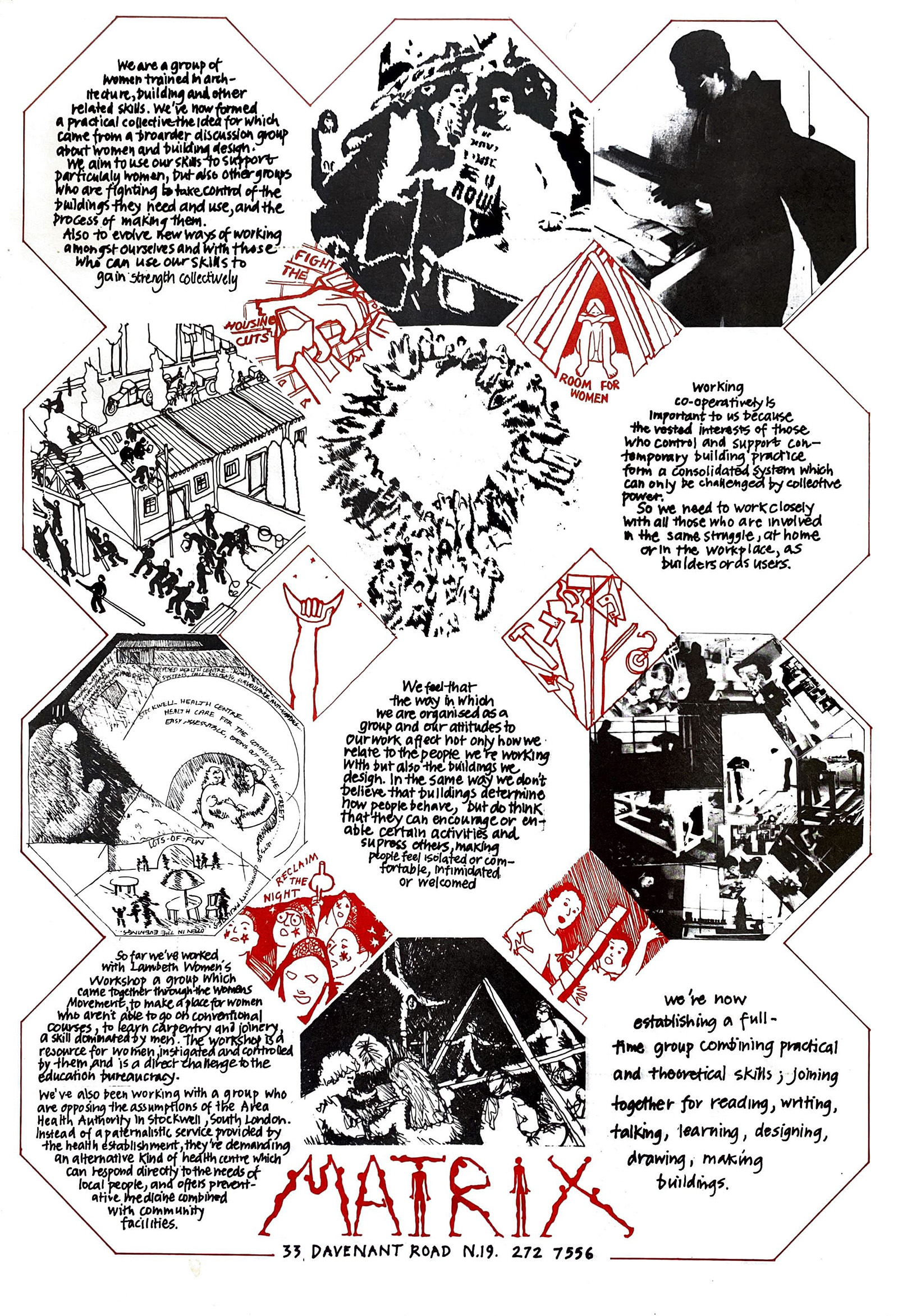
— Poster (1979), from the online archive of Matrix’s work
We also went to the launch of a new book called We Are ‘Nature’ Defending Itself: Entangling Art, Activism and Autonomous Zones. The two authors, Isabelle and Jay, coordinate the art activism group The Laboratory of Insurrectionary Imagination (among many other things) and live within the ZAD de Notre Dame des Landes.
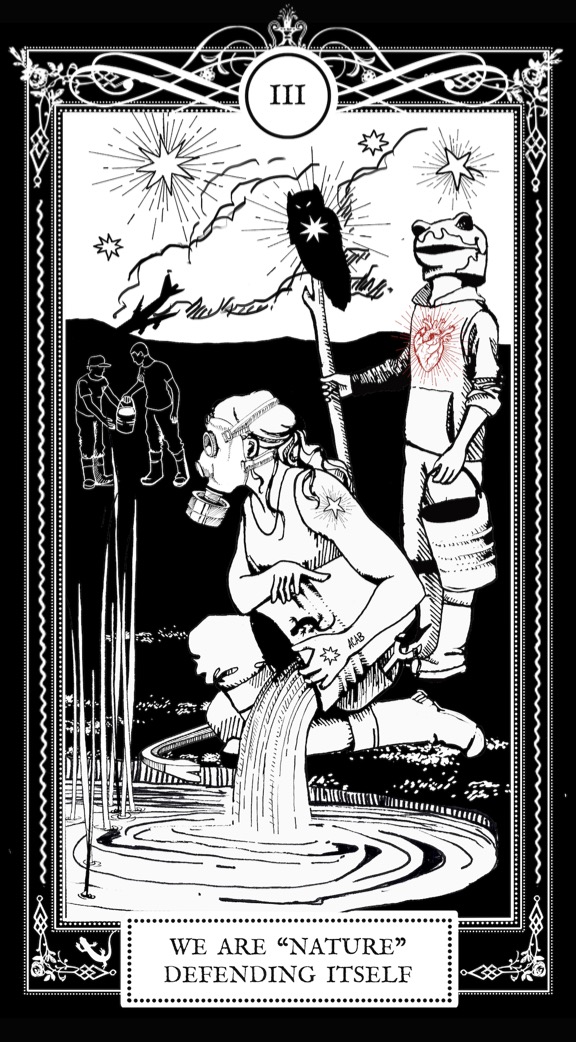
— Illustration by Amanda Priebe
The ZAD NDDL is an autonomous zone that begun to protest a new airport that the government planned to build on agricultural land. Activists and environmentalists started to squat in the area, alongside local farmers, and gradually built an entire self-organised community.
Over the years there have been several attempts by the state to evict the people living there and destroy their buildings, but this has been met with lots of resistance and solidarity from all over France. The airport plans have now been cancelled: a huge victory, although very hard won. They seem to now have reached an uneasy truce with the state – they’re negotiating for legalisation so they can stay on the land in perpetuity.
Isabelle and Jay told us about their practice and how they ended up at the ZAD. They were working in London (as academics, I think) and doing their art and activism on the side. They don’t see art and activism as two separate things. In their practice, they worked with both, in a participatory and pedagogical way.
At some point, they realised that they couldn’t live in the city any longer. They felt that cities are designed to keep us all divided from each other. They quit their jobs and travelled around Europe for a while, visiting communities and co-living projects throughout.
They settled in northern France for a while and began a housing co-op, but later realised that they still had a mindset of always travelling and moving around for their art practice. They needed to become more grounded into one place, and wanted to find a way to connect art, activism and everyday life. “Why can’t life be art?”
They ended up at the ZAD. They shared stories of the repeated attacks on the ZAD by the state, and the messy, complex, everyday reality of building a commons. You can watch two short documentaries that they made about the history and one about the how people there live now.
They see creation and resistance (yes and no) as two interlocking strands, like DNA. You can’t have one without the other. The counterculture of the 60’s was just about “dropping out” of society and alternative living, which made it easy for Silicon Valley to appropriate its ideals to capitalist ends. This made me think of my post about community gardens. They even said something like “if we don’t resist the extractivist death drive of capitalism, your community garden is going to be underwater.”
Excited to read the book!
Finally, the other day I came across The Reef, a communal living project in Brussels initiated by Edgeryders. I really hope they succeed! I want to live somewhere like this so much.
How and I went back to Australia for about three months during Southern Hemisphere summer. Now we’re back in the UK, enjoying the spring, seeing friends and family and cooperators, discussing lots of books and dreaming about what to do next.
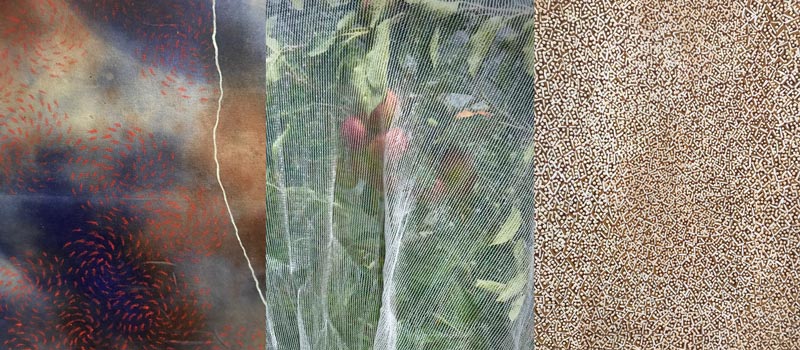
This was by far the longest I’ve spent back there since I left ten years ago. I feel so grateful to have a place like that to go back to, to have the freedom to move, and to see friends and family for the first time in two very strange years.
We mainly stayed in Melbourne and worked remotely, which was a whole new challenge with an 11-hour time difference. We did also go to Queensland to see family, Minjerribah (our usual holiday spot when I was growing up and one of my favourite places in the world), Lennox Head and Brunswick Heads in northern NSW, and Tasmania.
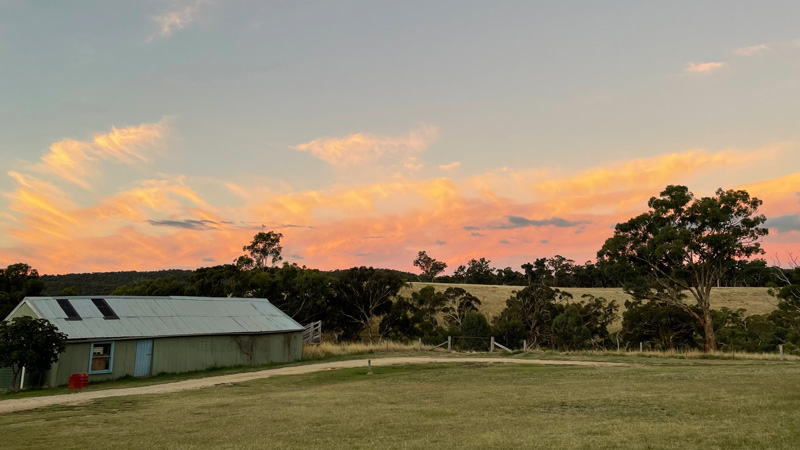
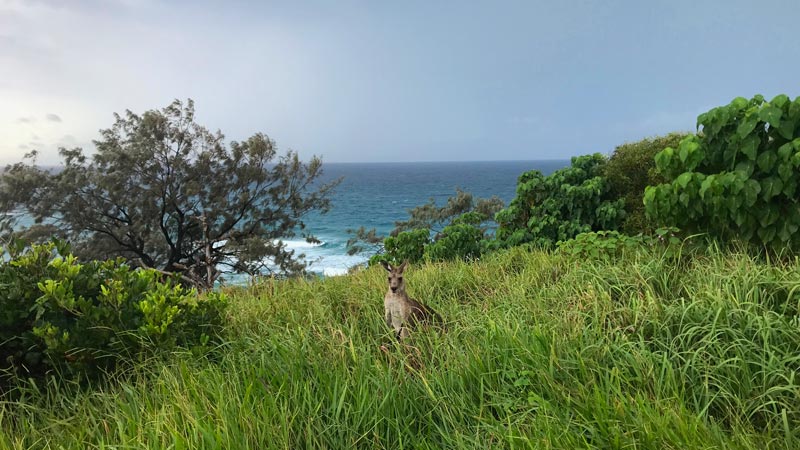
Visiting Tasmania was one of the highlights. It was my first time there and I was so in love with the natural beauty. It’s one of the first places in the world that’s gone carbon negative as they’ve shut down one of their big logging mills, so now their native forests absorb more carbon than the whole state emits. We saw so many animals there that don’t exist anywhere else.
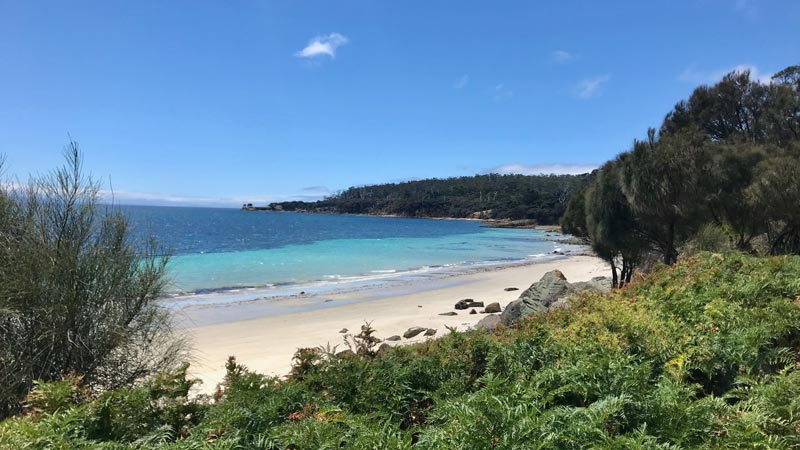
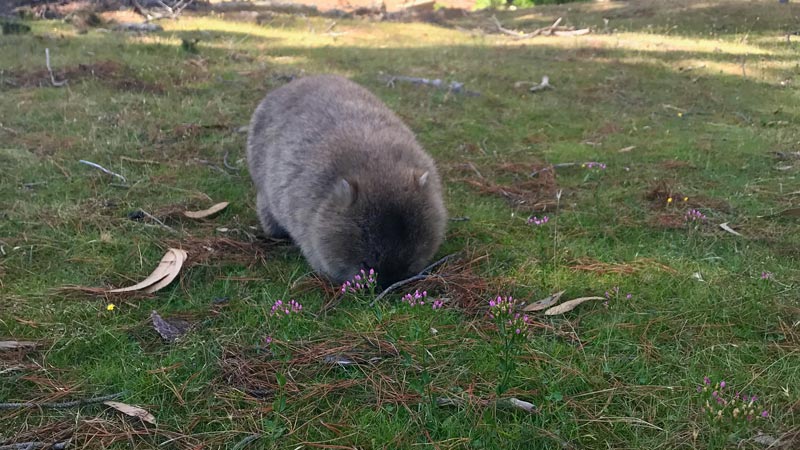
We stayed for a week in a tiny house outside of Hobart. It was so dreamy: a huge window at the front looking out to the bay. They had an outdoor bath where you could look up into the eucalypts filled with birds.
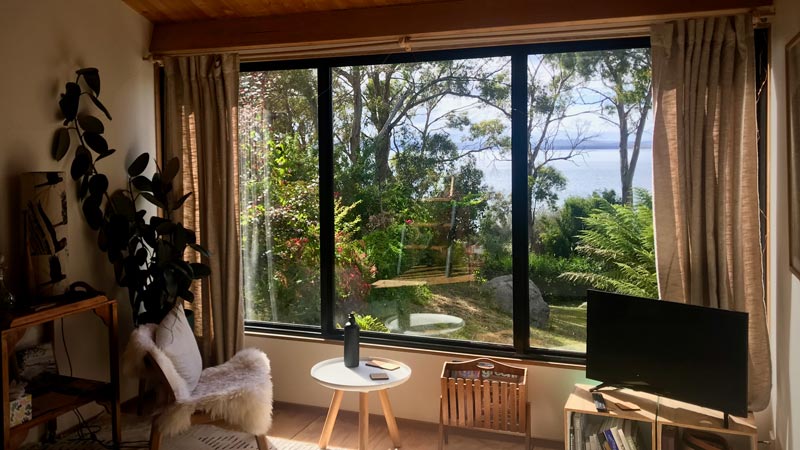
One of our favourite parts of this trip was visiting Paprika and Benjamin in Launceston. They and their house full of books and garden full of veg really inspired us when thinking about how we want to live and where we want to go next.
The worst part of the trip was getting caught in the terrible East Coast floods and having to spend a week in an evacuation centre. More on that in another post, but it was a really intense, visceral reminder of the kind of world that we’re heading towards (that we’re already living in). The depressing thing is that the area flooded again about two weeks after we were there, and now Queensland is flooding yet again.
Now I’m back in London staying with friends while we work out what to do next. It is a joy to be here again, to spend time with people that I’ve barely been able to see for so long.
How and I spent last weekend in a place called Praktyka in Devon and came back very inspired. They spent 18 months travelling the world and visiting other places like retreats and cooperatives to define what kind of space they wanted to build together. I’m really excited to see how it develops.
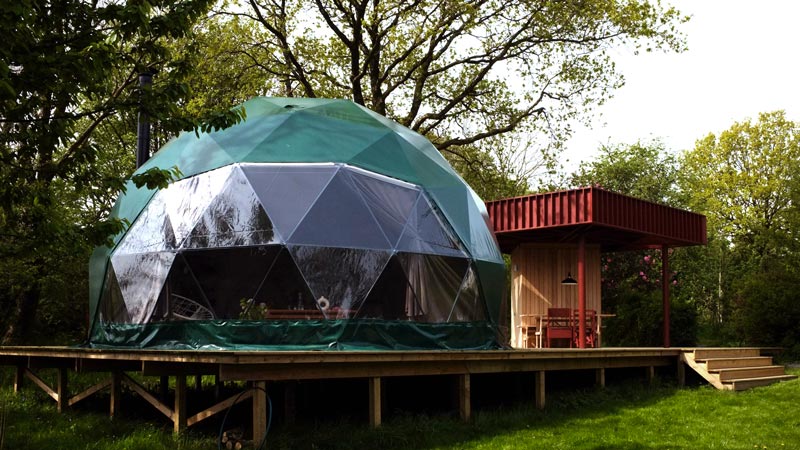
We’re definitely still in dreaming/planning mode, but How and I are hoping to find somewhere like this that we can make our own, to build a space where we can have friends visit, grow a garden, run a residency and maybe some type of event/community space.
Realistically we’re going to have to move out of south-east England to do this, so it’s been fun to explore the different options of where we could live. We’re hoping to spend some time over summer visiting a few places that are doing similar things in Italy and Spain.
I’m a little nervous of moving out of a city for the first time, particularly one where I have so many connections and there are so many opportunities. But we just feel so excited about the potential of a project like this. When I think about the times that I have been the absolute happiest, it would be summer 2019 when I stayed at Casa Sasso in Gambarogno and with Brave New Alps / La Foresta in Roverto. I just want that but… all the time.
Capital moves people around and draws them to the center: to find your luck you are urged to move from the village to the town, from the town to the regional capital, and from there to the metropolis. […] Resisting capital’s demand for constant movement is for some designers a strategy against precarisation.
Being exposed to precarity implies a constant temporariness, a constant flux of building and abandoning social and material structures, thus missing out on the possibility of creating interlinking infrastructures that can take us and others beyond precarity, infrastructures that can support critical practice through dire times.
– from Design(ers) Beyond Precarity: Proposals for Everyday Action by Brave New Alps
I’ve joined two remote reading groups. Both are open to join if you’re interested, dear reader.
One of them is Rererereading Group, which Paprika and Benjamin invited us to. So far we’ve read Blockchain Chicken Farm, which I enjoyed a lot, and The Question Concerning Technology in China, which I found too complex and philosophical so have dropped out for the time being. I have really enjoyed the calls that I have joined though – it’s just so fun to discuss a text so deeply with a small group and to deepen our understand together.
The other is a feminist sci fi reading group organised by Yuli. In our first session, 🌿 Entangling the Forest 🪱, we discussed Ursula Le Guin’s The Word for World is Forest, Adam Curtis’ All Watched Over by Machines of Loving Grace and The Daoist Yin Principle in Ecofeminist Novels by Amy Chan Kit-Sze.
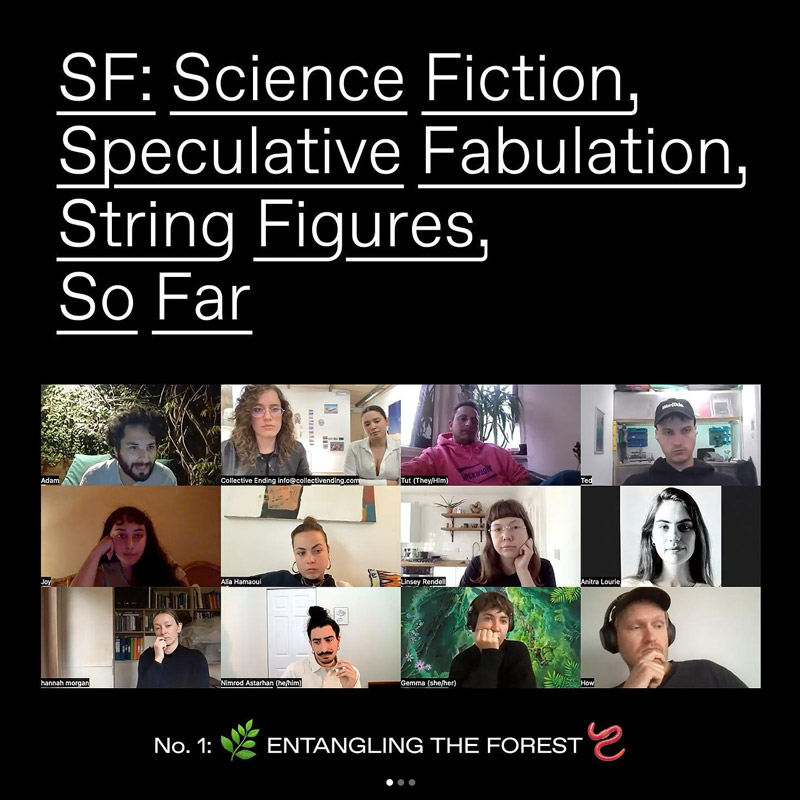
I usually hate after hours Zoom calls as it feels too much like work and even during remote lectures I end up zoning out. But I just found this session so engaging and fun. More exciting than a lecture because there wasn’t any hierarchy – just a group of people exploring ideas together. Yuli did a really great job curating the readings so there was so many interlinked topics to dive into which made for a very rich discussion.
Lots of Taoist/Daoist themes running through both reading groups. Next I’d quite like to read Le Guin’s translation of the Tao Te Ching.
I just finished reading a book called The Feeling Buddha, so I’m thinking a lot about mindfulness and spirituality. I also started therapy, and all of these things feel like they’re combining in really generative and healthy ways.
One of the nice things about being in London again is being able to spend time IRL with the rest of the co-op. We’re working from a space called Pelican House now, which is full of other left organisations like The World Transformed, Green New Deal Rising, Autonomy and London Renters Union.
The space got off to a bit of a slow start due to the pandemic, but it’s feeling more convivial now as people settle in. The hope is that the building will become a bit of a hub for the left in London.
At the moment, our co-op is trying to work out how to move into a calmer, slower, more abundant mindset. We’ve always had this as an intention, but the sheer amount of projects we’ve been working on and other pressures outside of our control have meant that we’ve slipped into frantic, scarcity thinking.
I feel really lucky (as ever) to have colleagues that are equally committed to thinking about collective care and addressing burnout. It does feel like things are gradually getting better in terms of our work-life balance.
Quite random, but it seems I’ve temporarily slipped into Beatlesmania after watching the Get Back documentary. I’ve never paid much attention to them before, but the film is a fascinating look into their creative process and their group dynamics. Now I can’t stop reading about them or listening to them. (Hopefully it’s just a phase.)
At the moment I do feel a deep despair at climate inaction and the invasion of Ukraine and the (waves hands) state of the world. But then I’m oscillating between that and an intense gratitude for my present and excitement for our future plans. Trying to just ride the waves and direct these feelings towards doing something meaningful and generative with my time.
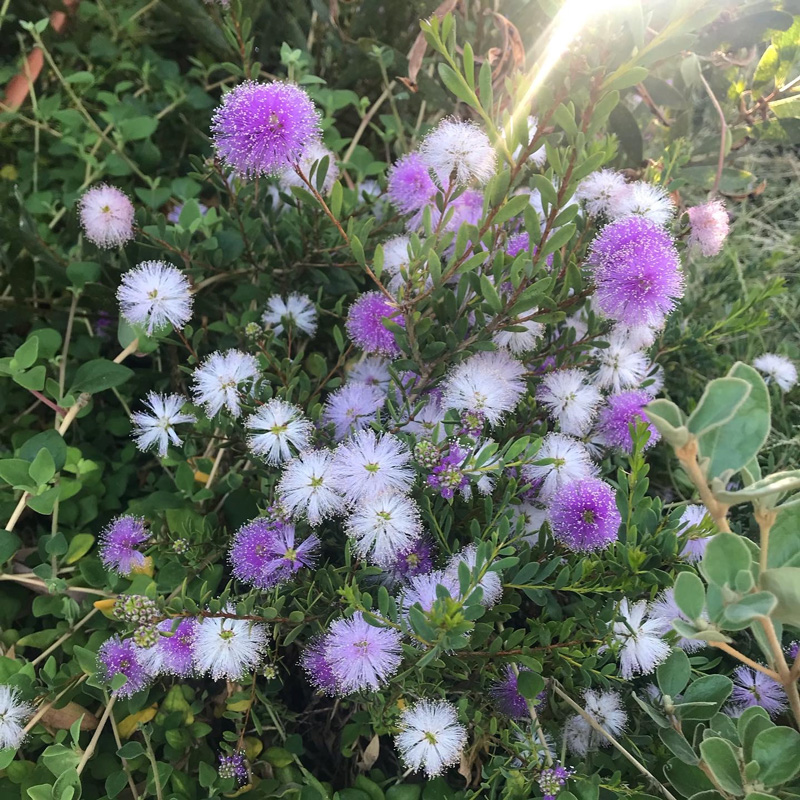
My wonderful friend Linsey made us a guide to Lisbon, filled with natural wine spots and local, seasonal food. Particular favourites were Senhor Uva and Comida Independente. We also stumbled on Bar Boca one night, a tiny natural wine bar in Alfama that does vegan tapas.
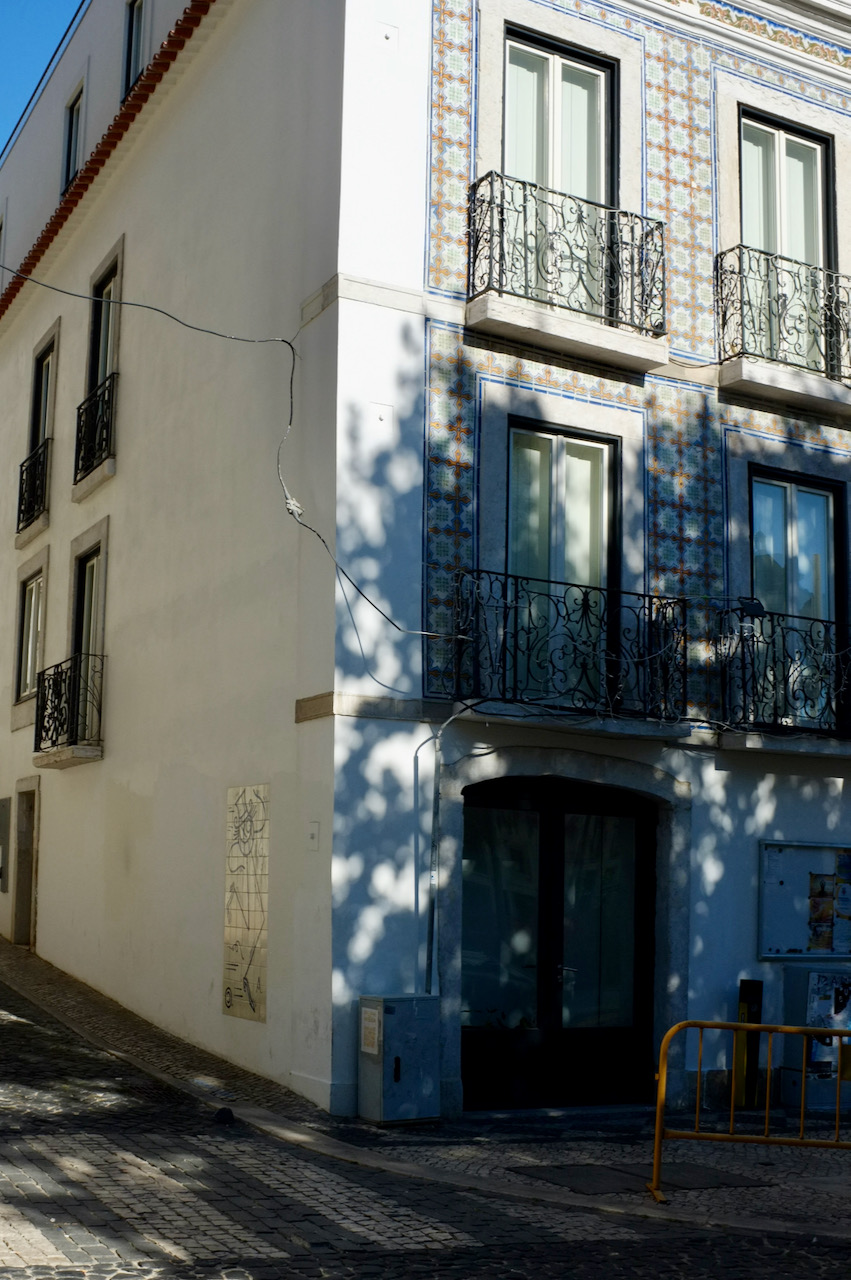
One of the highlights was the Atelier-Museu Júlio Pomar. I love his work, so colourful and joyful. The exhibition we saw was all about how he explored narrative and classic mythology in his work.
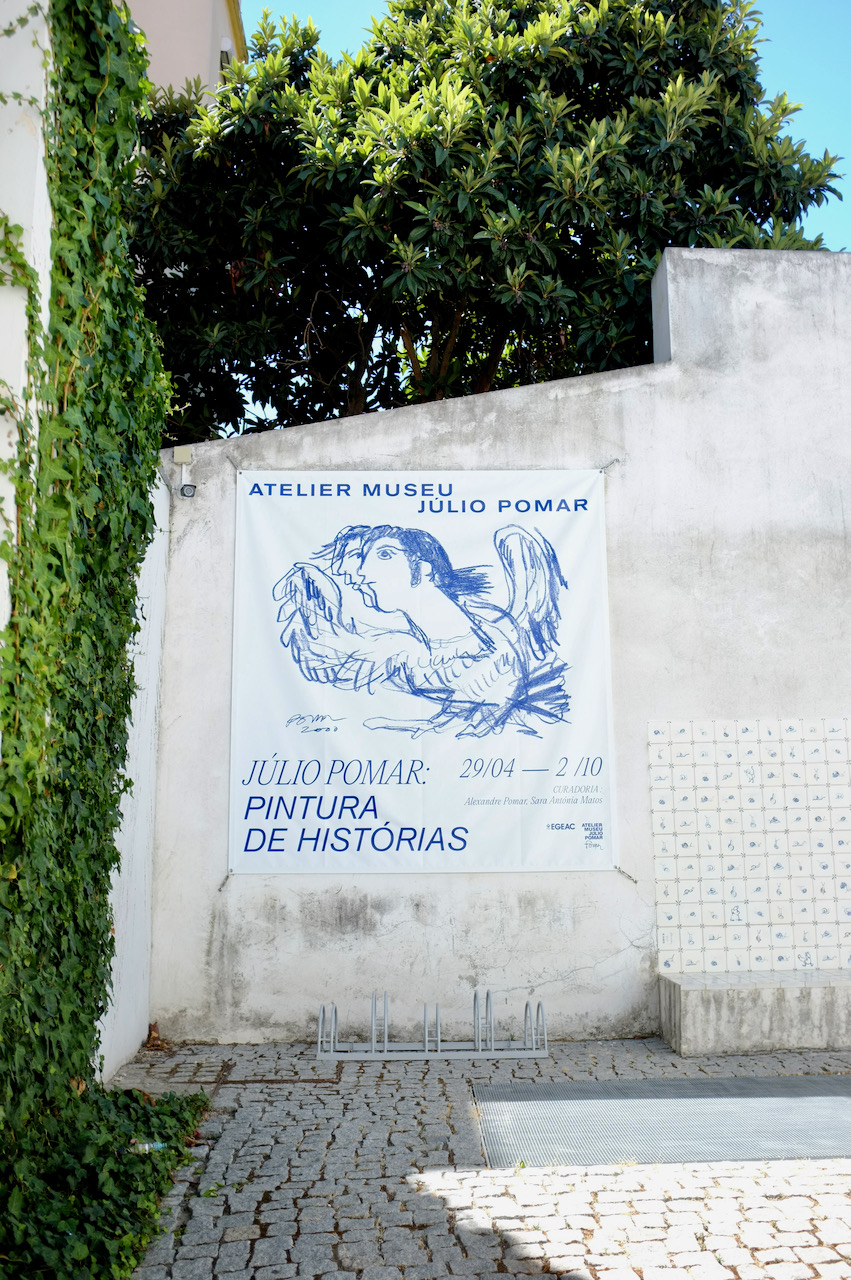
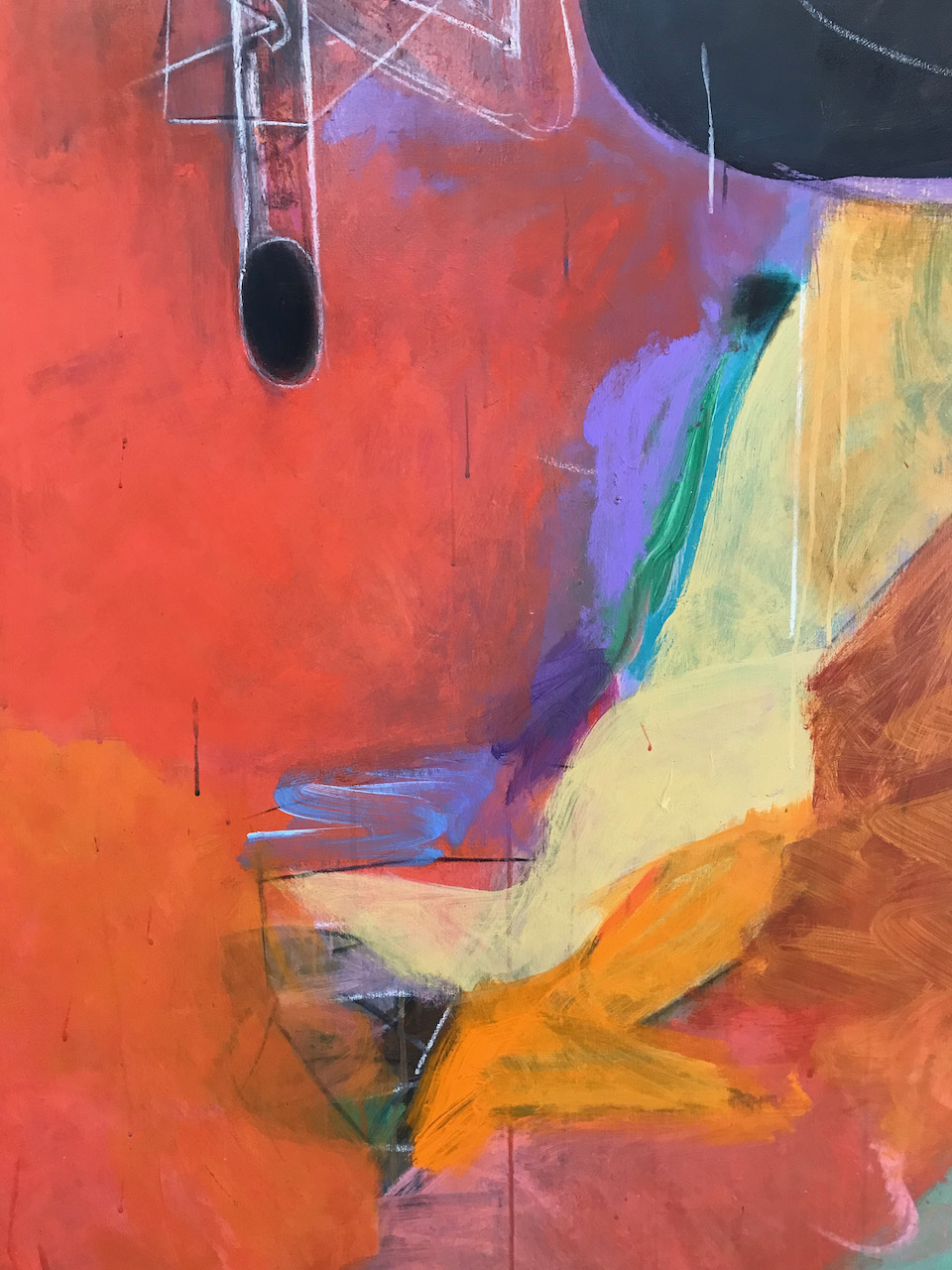
I’ve been really enjoying Panda Bear and Sonic Boom’s new album Reset. When we were in Lisbon I discovered that Panda Bear has been living there since 2004!
At the Palais de Tokyo in Paris, I was pleasantly surprised by a map of the Brisbane River at the beginning of their Reclaim the Earth exhibition. It was part of a series of works by Judy Watson, an Indigenous Australian artist.
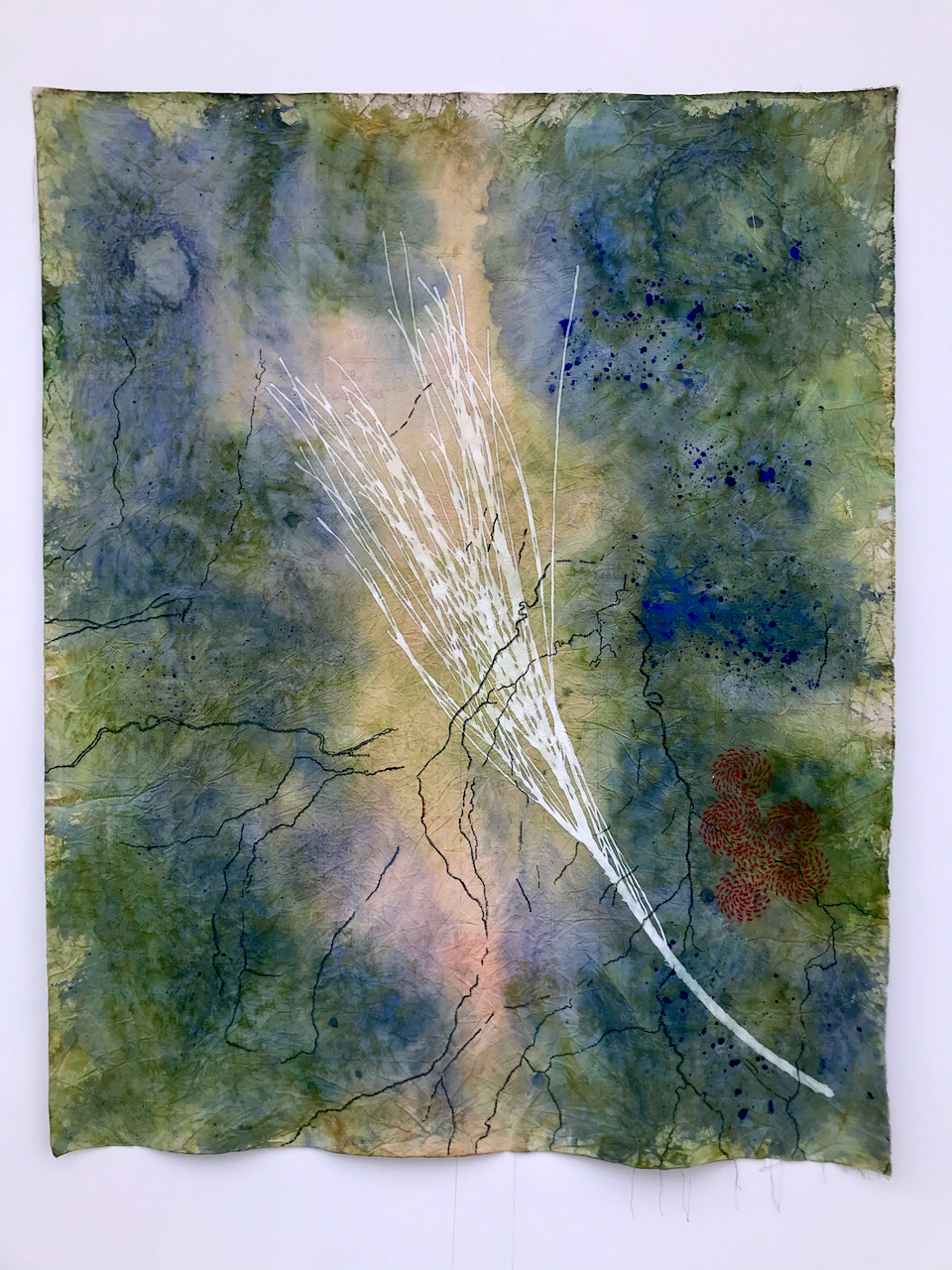
The works all centred around water and its memory, responding to both the history of the Seine and in Queensland. She sources artificial and organic materials to make natural dyes, then lets the pieces evolve in open air and on the ground.
Her creative process leaves room for the accidental and the random, and for the effects of time, environment, and natural material on her work in a context of deep climate change. The artist’s method evolves by working from site and memory, revealing Indigenous histories, following lines of emotional and physical topography.
In Rotterdam, I visited my friend Ben at Extra Practice, a studio space he shares with four of his friends. It’s a wonderful converted shopfront on a corner, glass windows open to the world. Same energy as Evening Class, except it’s amazing how much further you can take it if you do it outside of London.
While I was there, we did a show for their radio station Good Times Bad Times. It was a lot of fun! They’ve just started a new “season” centred on refusal, which linked in really nicely with some of the themes I’ve been thinking about too.
We also visited Varia during their open hours. We were just planning to drop by briefly but ended up staying for many hours – they even cooked us lunch. Really enjoyed hearing about their projects, how they got started, what they’ve been thinking about.
So excited to see the new Nightjet trains from OBB. They look so cozy! I would be happy to never set foot on a plane again if I could just travel around on one of these.
Love this quote from a recent Kim Stanley Robinson interview:
Nature and natural are words with particular weights that are perhaps not relevant now. We are part of a biosphere that sustains us. Half the DNA in your body is not human DNA, you are a biome like a swamp, with a particular balance or ecology that is hard to keep going – and indeed it will only go for a while after which it falls apart and you die. The world is your body, you breathe it, drink it, eat it, it lives inside you, and you only live and think because this community is doing well. So: nature? You are nature, nature is you. Natural is what happens. The word is useless as a divide, there is no Human apart from Nature, you have no thoughts or feelings without your body, and the Earth is your body, so please dispense with that dichotomy of human/nature, and attend to your own health, which is to say your biosphere’s health.
I just read Walkaway by Cory Doctorow and really liked it. It felt clunky in parts (often this kind of idealistic sci-fi does) but I enjoyed a lot of the themes: post-scarcity, anarchism, refusal of bullshit jobs, open source everything, mutual aid.
He wrote a short article in Wired about it: Disaster Doesn’t Have to End in Dystopia.
One of the phrases that has been rattling around in my head after reading it is “slicing time thick”:
Even after years of walkaway, she was used to slicing time into rice-paper slices thin enough for one discrete thing, before moving onto the next. Most of the time, she rushed to complete this current moment before the next thumped the door. Every adult she’d known matched that rhythm, the next thing almost upon them, the current one had best be taken care of in haste. Etcetera sliced his time thick.
It’s something I’ve been trying to focus on over the last few weeks. I’m thankfully on holidays now, but in the lead up to my break I was feeling so burnt out and overwhelmed. The more exhausted I got, the more I would scramble around rushing through tasks and not doing a good job of anything.
I’m trying to focus on moving very slowly, not planning too much, not expecting too much of myself. Easier to do on holidays, of course, but I want to find ways to bring this slowness with me once I go back to work.
Four Thousand Weeks – that’s the amount of time you get if you live to 80. Not only does it feel like an impossibly small amount of time, it also speeds up the older you get.
I really enjoyed this book by Oliver Burkeman. It’s less of a self-help book, more of a meditation on time and our relationship to it. It reminded me a bit of another all-time favourite of mine, How To Do Nothing.
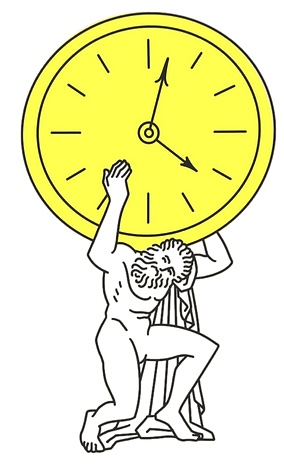
Most productivity frameworks are about trying to control your time and squeeze more activity into your finite day. You end up spending all your time “clearing the decks” of urgent but unimportant tasks, and never actually get around to the really important stuff. Day-to-day life becomes an endless to-do list that we have to get through efficiently on the pathway to a point where our real life can begin.
Burkeman suggests there is always going to be too much to do and there will never be enough time. We shouldn’t try to be more productive, but instead embrace our finitude and accept that there’s a whole lot of stuff that we’re just never going to do.
The day will never arrive when you finally have everything under control… The more you confront the facts of finitude instead — and work with them, rather than against them — the more productive, meaningful and joyful life becomes.
This necessarily requires some sacrifice. It’s not just about saying “no” to the things you didn’t really want to do anyway – it’s also about giving up some things that you really want to do.
There are hard choices to be made: which balls to let drop, which people to disappoint, which cherished ambitions to abandon, which roles to fail at.
Instead of clearing the decks, declining to clear the decks, focusing instead on what’s truly of greatest consequence while tolerating the discomfort of knowing that, as you do so, the decks will be filling up further, with emails and errands and or to-dos, many of which you may never get round to at all.
The key is not more productivity but conscious choices and acceptance – the joy of missing out. We have to accept that this is a sacrifice, that we will feel discomfort, that the to do list will always be infinite…
The core challenge of managing our limited time isn’t about how to get everything done but how to decide most wisely what not to do, and how to feel at peace about not doing it.
Personally, I feel like I’m always living in the future: either anxiously worrying about what’s going to happen or excitedly/impatiently imagining various future scenarios in great detail. I really agree with Burkeman’s arguments about letting go of our obsession with the future and paying attention to the current moment, but in practice it’s obviously much harder.
You can’t know that things will turn out all right. The struggle for certainty is an intrinsically hopeless one, which means you have permission to stop engaging in it.
One bit that really resonated with me was the part about time as a “network good”: our time is only valuable when it’s in sync with the people we care about. This necessarily means relinquishing control over our own time, in order to fall into step with others. Digital nomadism (I hate that term) optimises for extreme personal sovereignty over time, at the expense of being connected to others – which is ultimately what makes life meaningful.
To be deeply rooted in a particular community or place, you have to stop moving around. These kinds of meaningful and singular accomplishments just take the time that they take.
The book gets more practical in the appendix, which summarises the main points and suggests some actual things you can do day-to-day, like:
Lately I’ve been thinking a lot about my routine. I’ve been trying to introduce a bit more structure into my work day… not as an attempt to be more productive, more so that I create stronger boundaries between work and the rest of the work. I can sometimes start working at 8am, forget to finish early and then feel totally wrung out by the evening. This isn’t how I want to work at all, because I really believe the research that says working longer hours doesn’t mean you’ll get more done. But with remote work, it can be so easy to slip into working longer and longer hours.
I found Overthink’s episode about Productivity really interesting. I like their suggestions at the end: aim for creativity over productivity, focus on the process not the product, and move more slowly and sustainably.
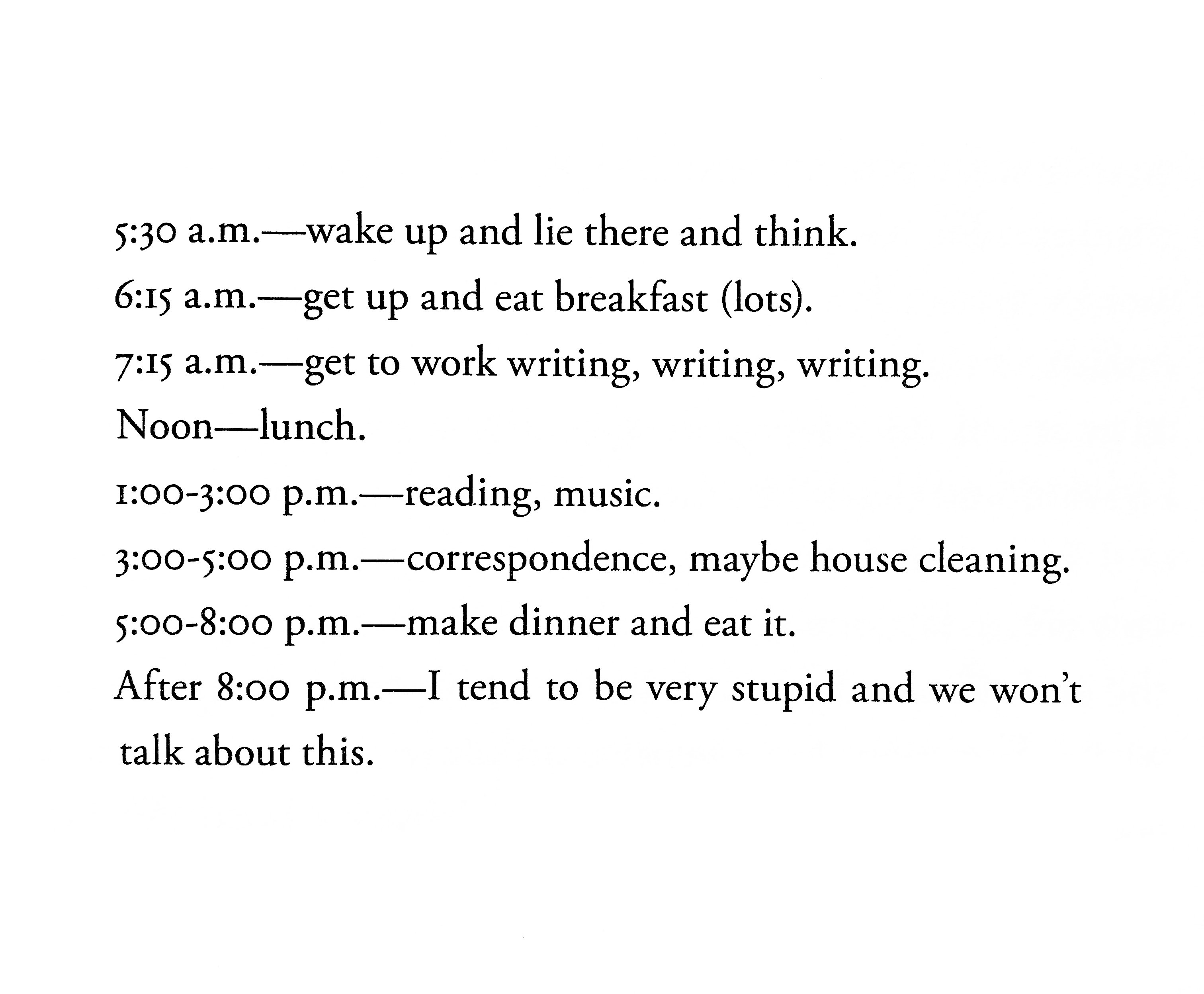
▲ Ursula Le Guin’s daily routine
I also really liked this advice from the Doist blog that suggests you should “pay yourself first” each morning. Instead of waking up and diving straight into work (or social media), it’s about setting aside the first hour or so of the day for yourself. This is time to do the important-but-not-urgent things that contribute to your own wellbeing or creative practice, rather than try to squeeze them in around your professional work.
Lately I’ve been writing morning pages… not quite every day yet but I’m getting there. This is one of those practices that is so simple but incredibly effective.
Morning Pages are three pages of longhand, stream of consciousness writing, done first thing in the morning. There is no wrong way to do Morning Pages — they are not high art. They are not even “writing.” They are about anything and everything that crosses your mind– and they are for your eyes only. Morning Pages provoke, clarify, comfort, cajole, prioritize and synchronize the day at hand. Do not over-think Morning Pages: just put three pages of anything on the page… and then do three more pages tomorrow.
I’ve found it really useful to have a “shutdown ritual” in the evening, which helps in creating that work-life separation. I like to exercise straight after work as well, to clear out my brain and re-situate myself in my body.
This year has been a bit of a weird one because How and I still don’t have a permanent home. We spent the first three months with friends and family in Australia, three months living with friends in Camberwell, six weeks subletting a friends’ place in Hackney, six weeks of visiting friends and holidaying in Europe (Portugal, France, The Netherlands, Germany and Greece), some time at H’s parents place and a few months living in Wales.
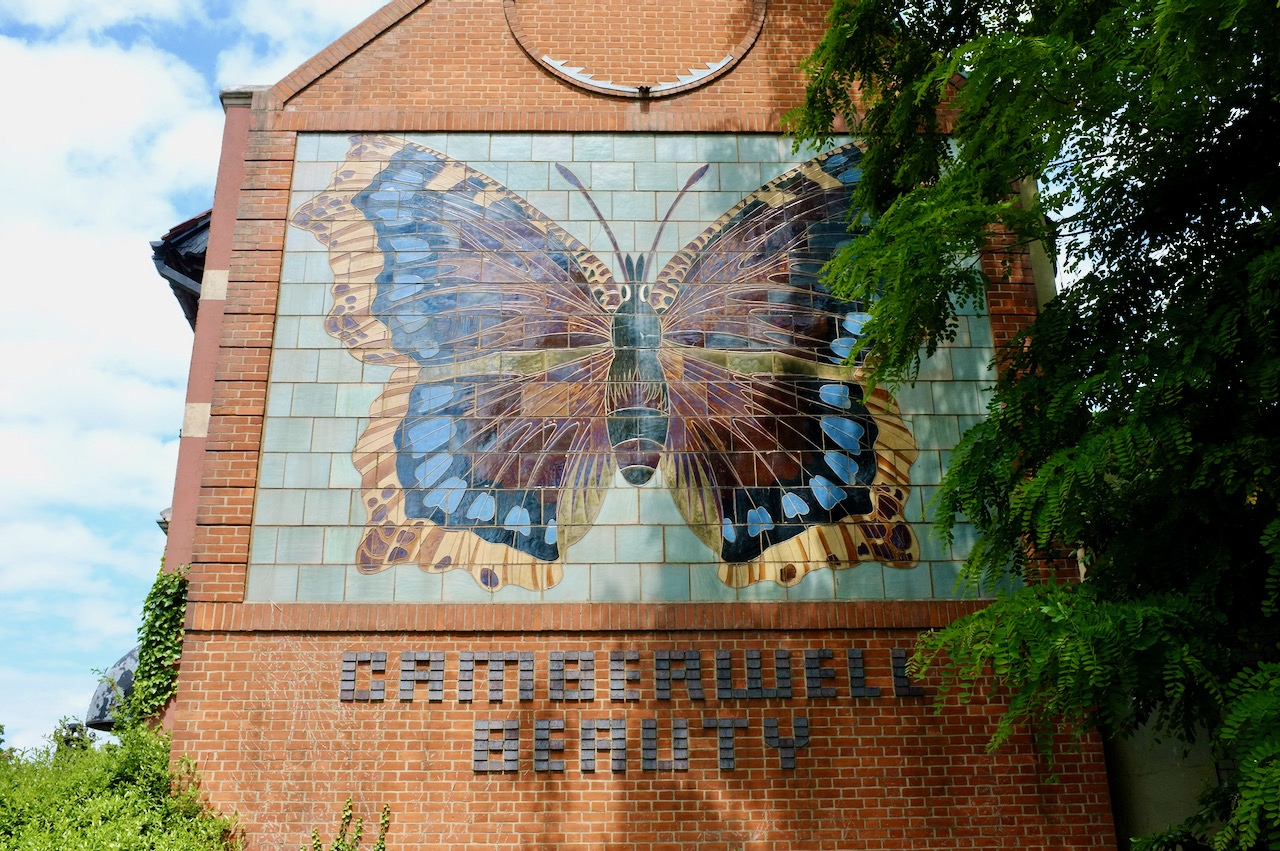
▴ Camberwell Beauty
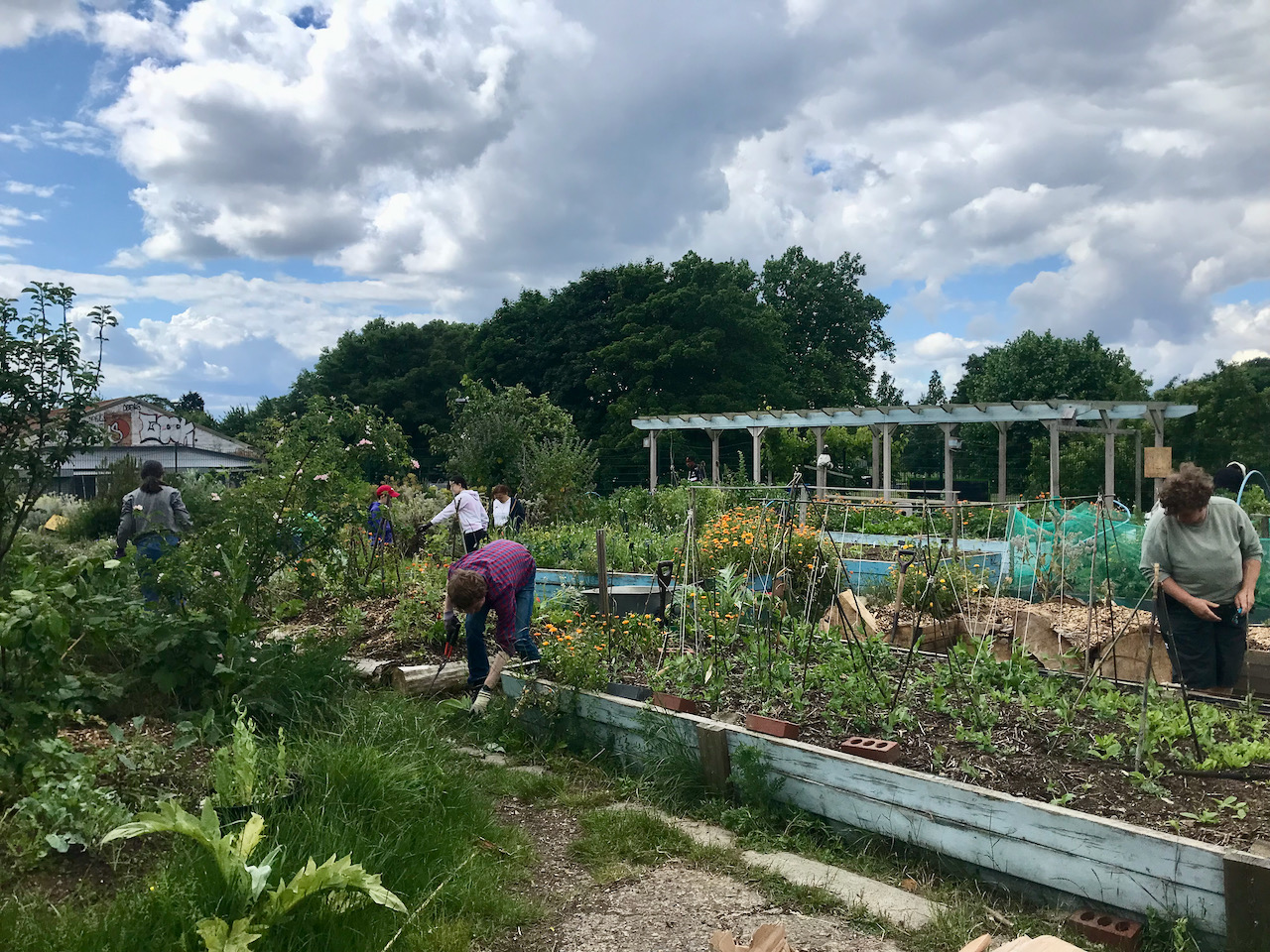
▴ Glengall Wharf Gardens in Camberwell
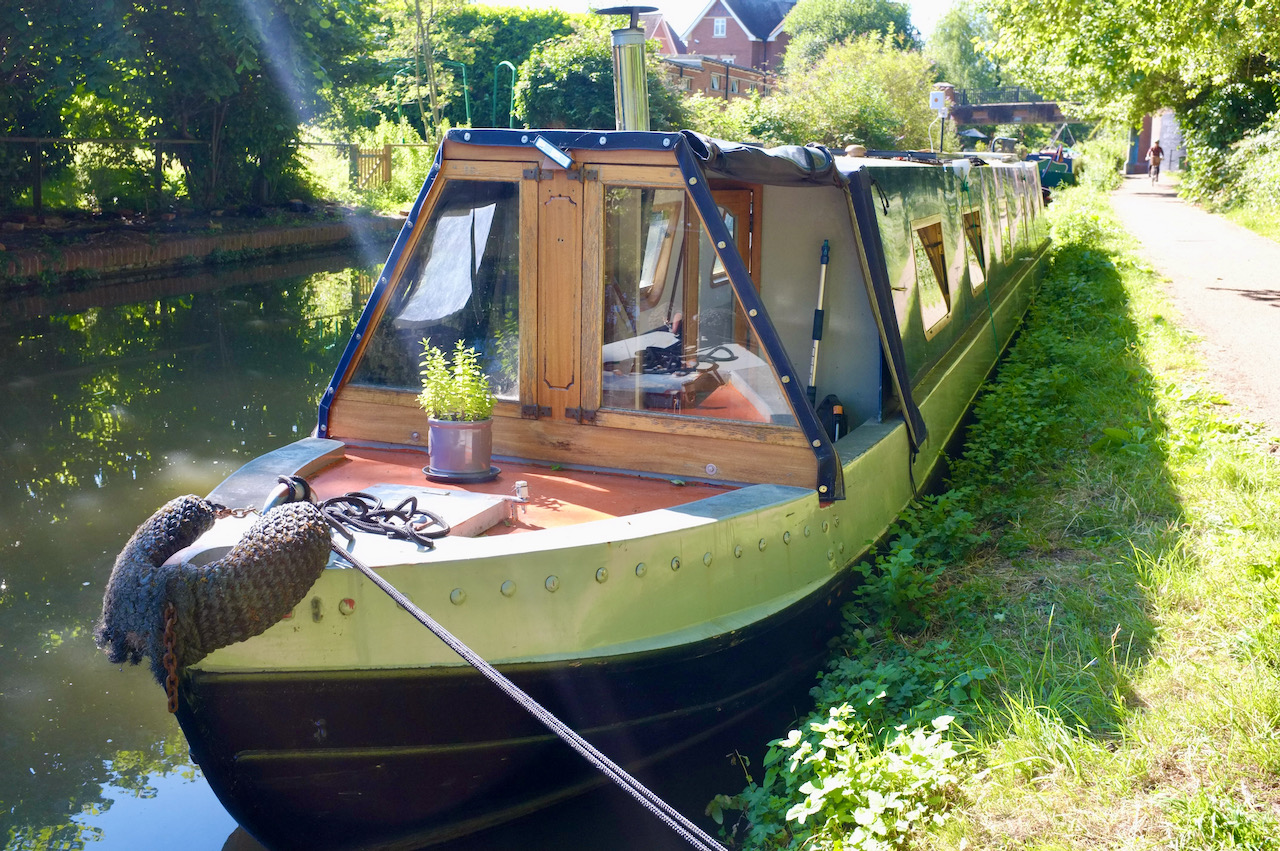
▴ Visiting Leila & Stu and their boat Dirty Penny in Oxford
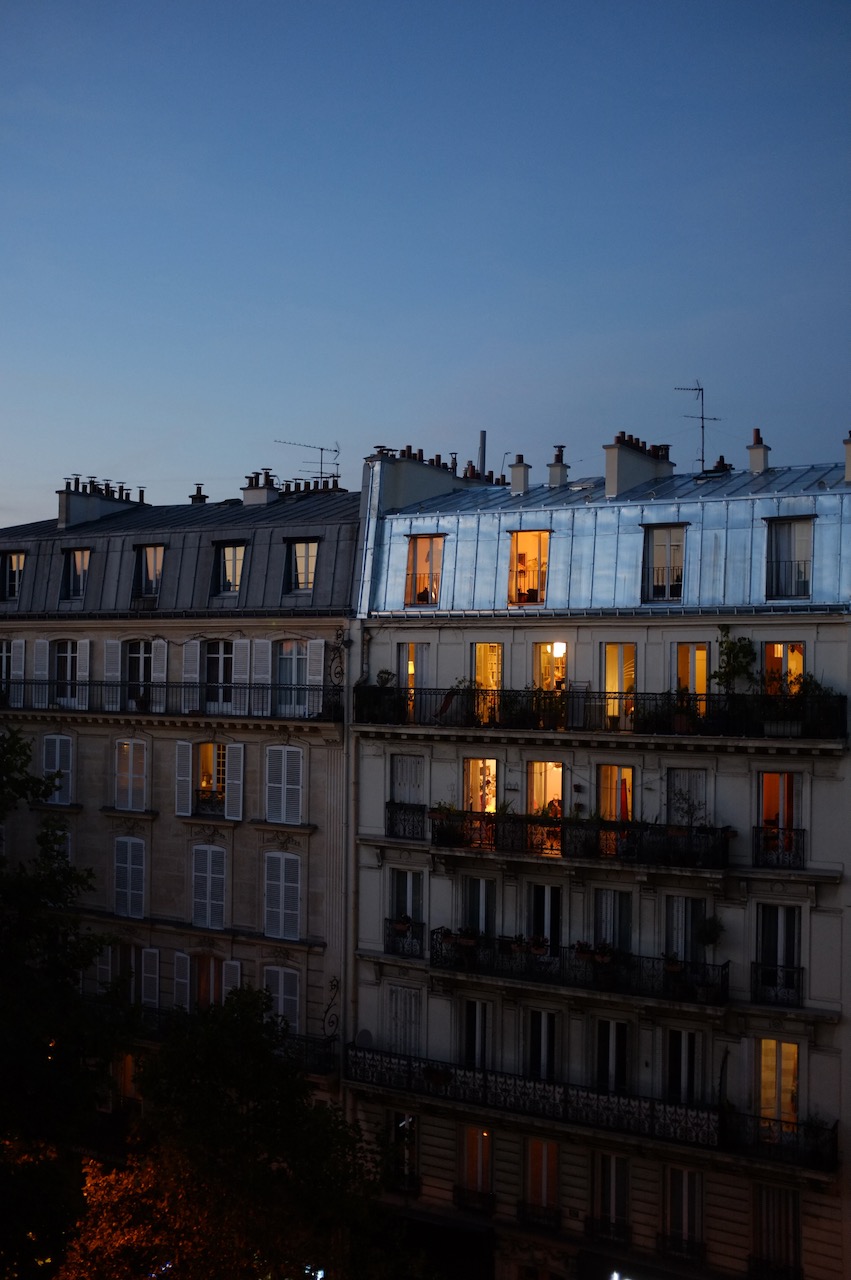
▴ The view from Luke & Reba’s place in Paris
This year we did a few more multiday hikes and I hope next year we’ll do many more. I find hiking to be so meditative. I love walking through different landscapes, being completely connected to my body, seeing the stars, waking up again in the middle of it.

▴ Hiking near Coed y Brenin
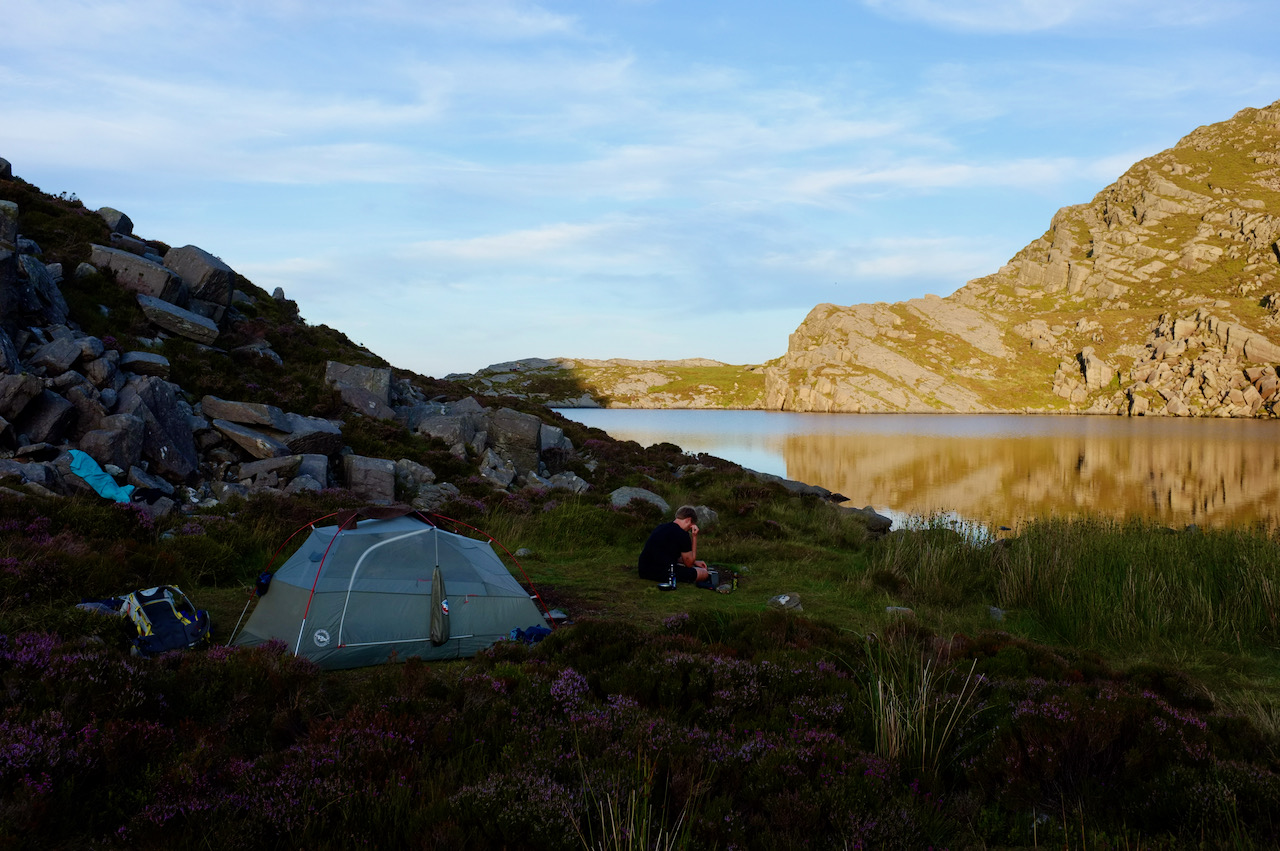
▴ Camping next to Llyn Du
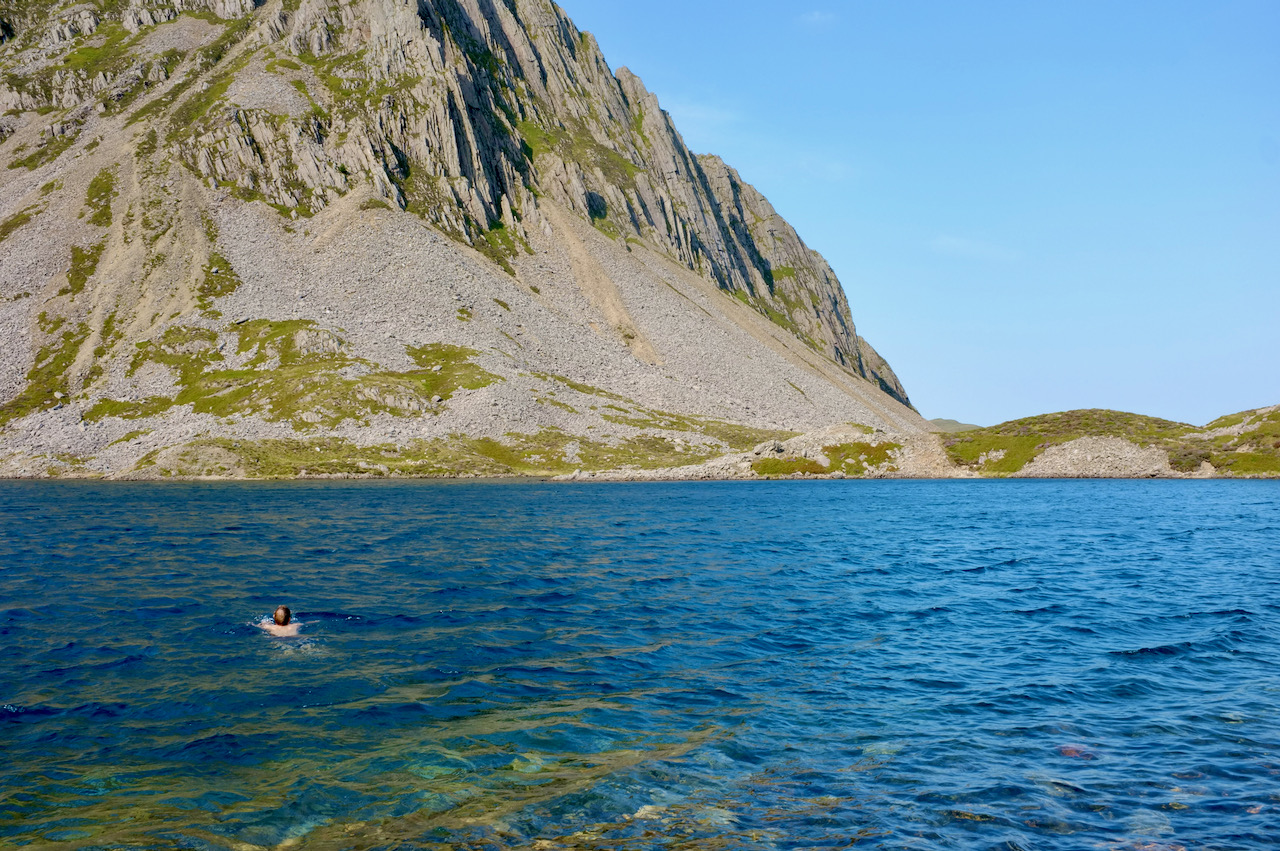
▴ Swimming in Llyn y Gader
We also did a lot of camping with friends as it seemed to be everyone’s birthday celebration of choice this year. So much fun. I never did it much as a kid so it’s a bit unfamiliar to me but I’ve found I really love it.
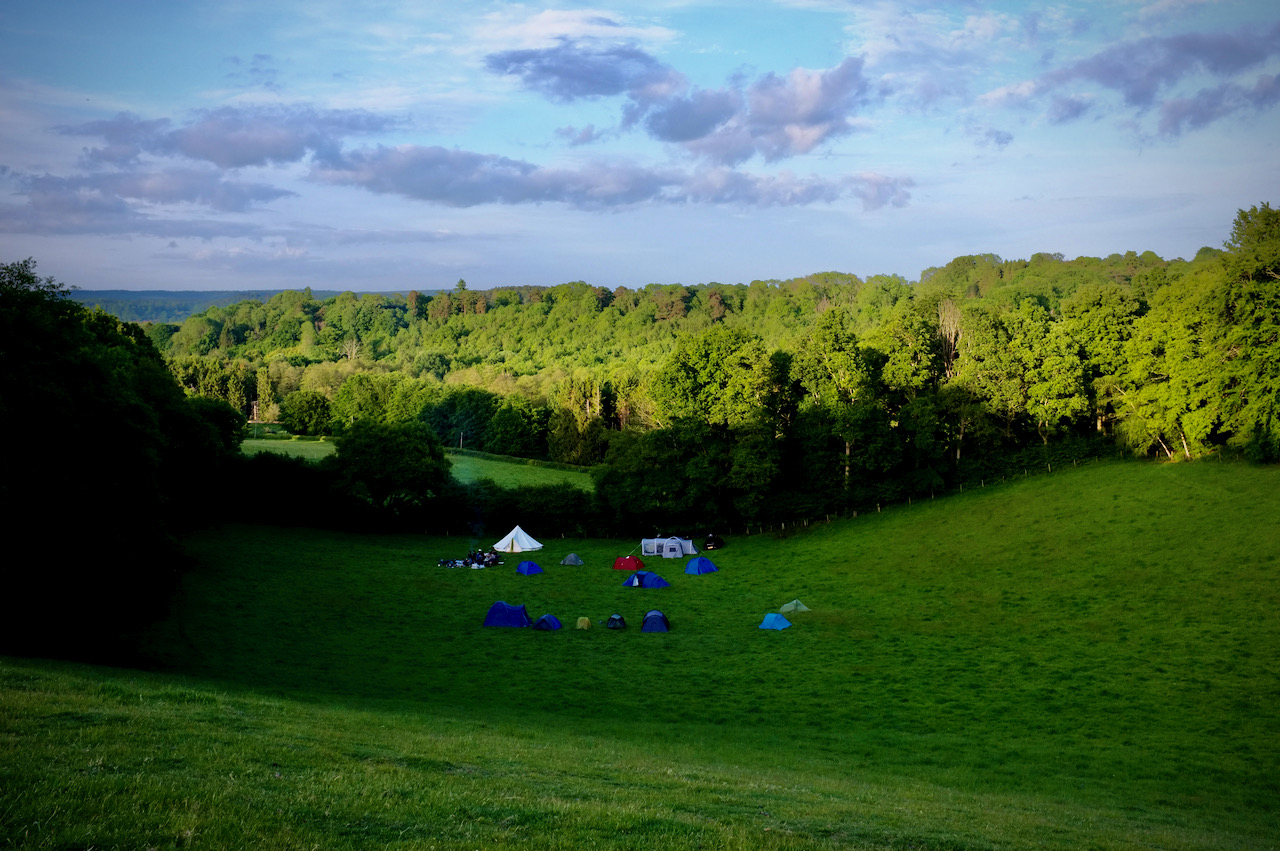
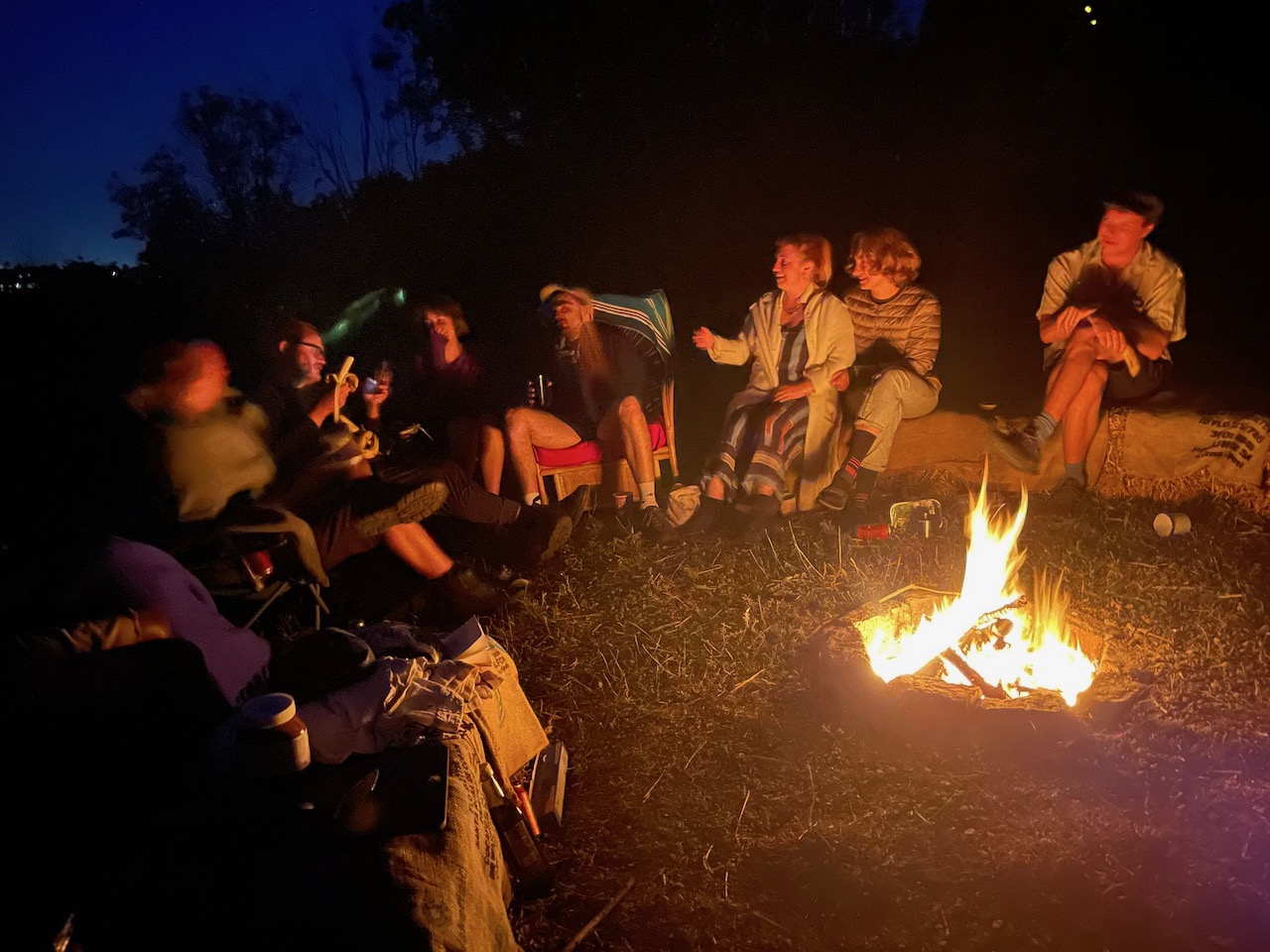
I’ve really enjoying doing more weaving this year — I’ve made a few of them as gifts for friends and family.
Another big change was beginning therapy. I’ve been finding it transformative to have regular sessions. It’s helped me to reflect on big patterns in my life, pay attention to my body and learn frameworks for dealing with future situations, having difficult conversations and giving clean feedback.
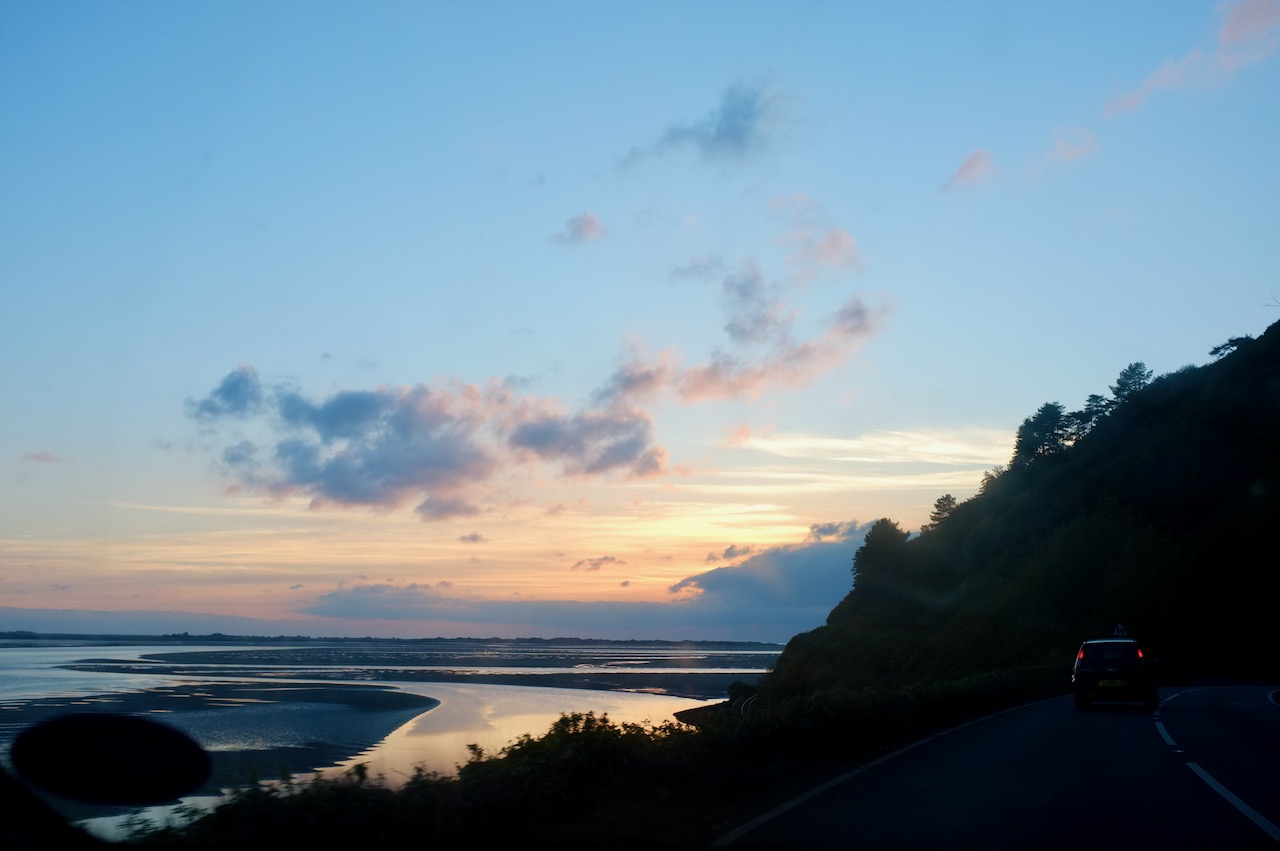
▴ Driving along the coast in north Wales
I read 40 books this year! The ones I enjoyed most were:
I’ve also loved reading books together with Paprika, Benjamin, How and others in Rererererereading Group.
To be honest, this was a tough year for Common Knowledge at times. Although we’ve had plenty of interesting and important work on, our finances at points over the year have been rocky. This has been due to a whole range of factors, some of which were out of our control and some which were just lessons we needed to learn the hard way.
Nevertheless, we’re ending it in a much healthier place than where we started and we’ve learned loads. I feel really optimistic about 2023 for us. We’ve made a lot of changes in how we run that I feel will protect us from future risk. In the meantime, if you think our work is important and want to support it, we have an Open Collective for donations.
Despite this turbulence, I think we’ve done some great work. The type of work we’re doing is evolving slightly. We did some much bigger projects (digital transformation projects rather than campaign websites) and more consultancy/coaching work (rather than delivery). I think both of these are a move in the right direction. The downside is that there’s a lot less to show for it at the end of the year, but I think that’s fine.
The good thing about these bigger projects is that we got to do more extensive research and discovery phases, which I deeply enjoyed. (Shout out to Dovetail for being the best research tool out there.) I feel like I learned a lot about interviewing people and I got over some of my insecurities around this. In particular, Will Myddelton’s framework for running discoveries provided us with a lot of useful guidance.
The biggest project we did was a complete redesign and replatform for Humanitarian OpenStreetMap Team, an international organisation focused on humanitarian action and community-led development through participatory mapping and open data. This was a huge undertaking but we all learned a lot and I’m proud of the result. HOT are still working on the content at the moment but hopefully the new site should be launching early next year.
I really enjoyed working with The Architecture Lobby. I interviewed a bunch of their organisers in the US, which was an interesting look at a different political landscape. We made recommendations for gradually streamlining their entire digital infrastructure alongside redesigning their website, which should also launch next year.
I coached participants of the UnFound Accelerator again this year, which is a program that helps founders turn their ideas into platform co-ops. I also got to (remotely) have a really interesting discussion with John Caserta and the Design & Politics students at Rhode Island School of Design. It was really nice to go back to doing some IRL talks/conversations this year too: at the Weizenbaum Conference in Berlin, with Good Times Bad Times in Rotterdam and at The Forest Multiple symposium in Cambridge.
We also had some internal changes within the team: we hired Anna T to help us manage our projects and the co-op in general, and Jamie joined us for a year-long placement from Kingston College of Art. We also did a lot more work with our associate members Everin and John. It’s so nice to have more people join the co-op and I really hope this continues next year. As ever, I feel so grateful that I get to do what I love with people who love it too.
Although it’s been wonderful to freely move around this year and see people that we haven’t seen in years, How and I are at the point where we really need to put down some roots and stay still for a while.
It’s taken quite a while to decide where we should live. I kept getting into endless cycles of rumination and indecision: weighing up options, worrying if they’re the right one.
One of the things that I’ve learned this year is that at a certain point, any decision is the right one. We just have to try it out and see. If we don’t like it, we can change our minds. It’s funny because this is one of the principles of sociocracy that is so foundational to our work at Common Knowledge: “is it good enough for now and safe enough to try?”
You can only ever choose to take the next most elegant step. The best decisions I’ve ever made have been full of uncertainty at the time: choosing to quit my job in Brisbane and spend six months in Europe (which has now become 10+ years); moving to London which led to getting involved with Evening Class and then Common Knowledge.
Anyway, what we’ve decided is to move to Lisbon early next year. If all goes well and it feels like a good fit, we’ll hopefully look for somewhere just outside one of the cities and start on our housing co-op dream. We’re inspired by people who are doing this already like re:gen, Casa Beatrix and Project Kamp in Portugal, as well as collectives like Robida and Brave New Alps in Italy. Who knows where this step will lead, but I’m very much looking forward to 2023.
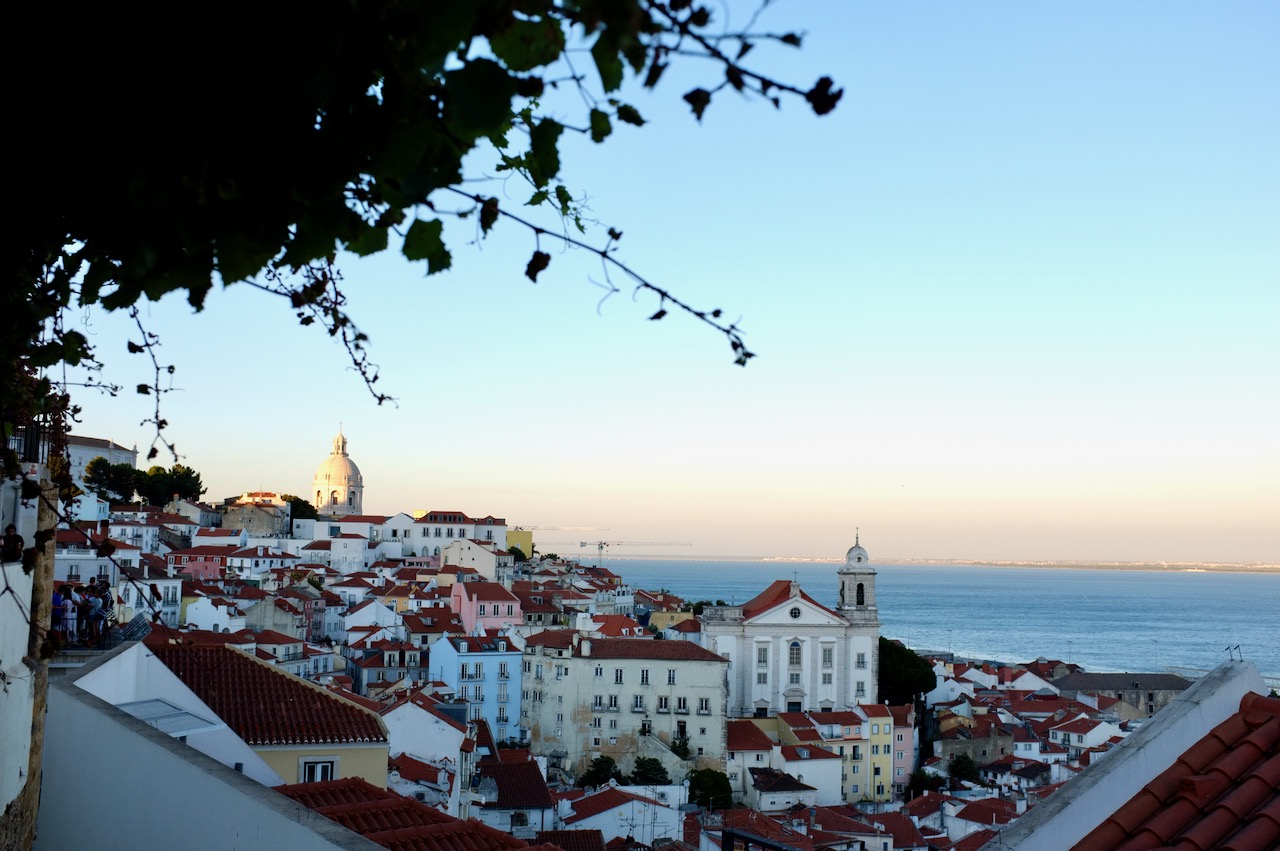
▲ Lisbon in late summer
This year feels so full already and it’s only March. All the energy I would have usually spent on writing has been going towards moving country and relaunching the Common Knowledge website. Things are starting to feel a bit more settled this month though.
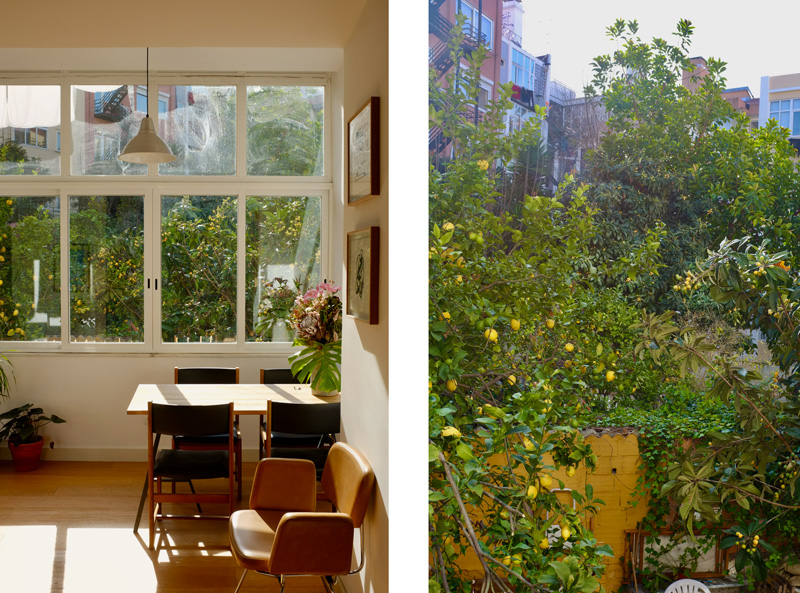
Some photos from this weekend.
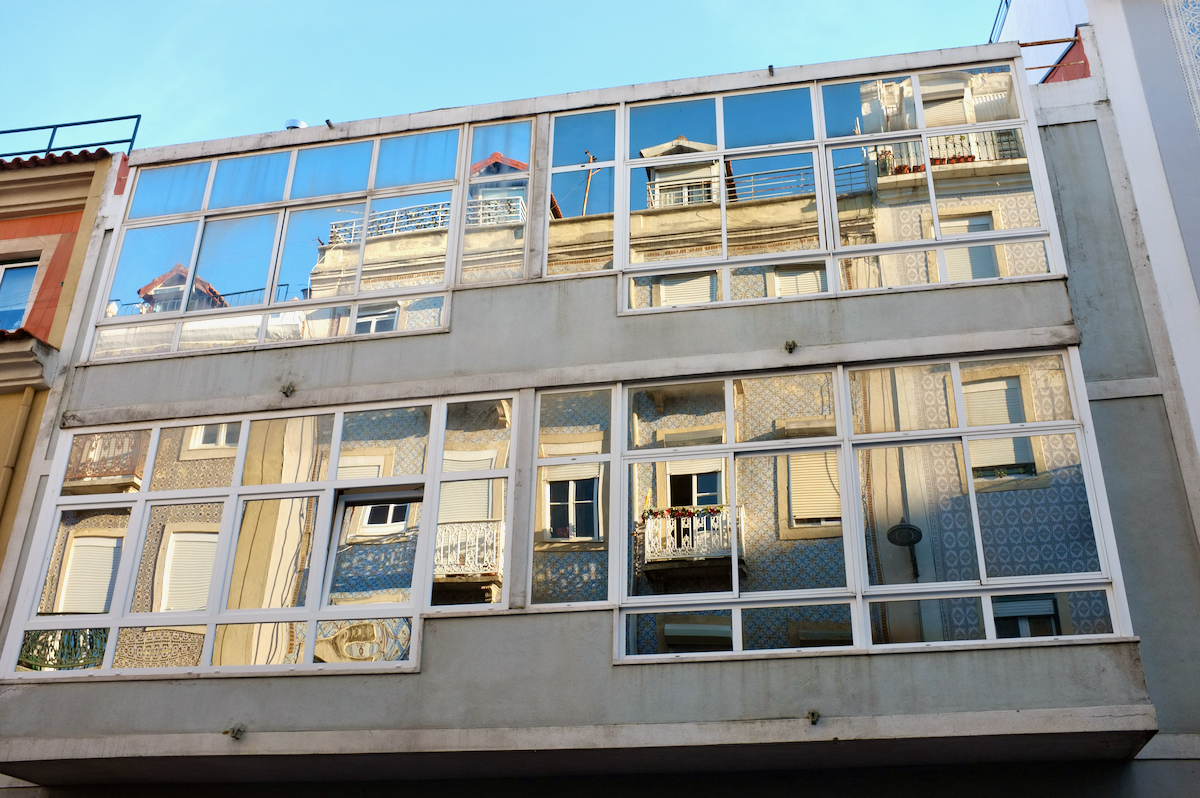
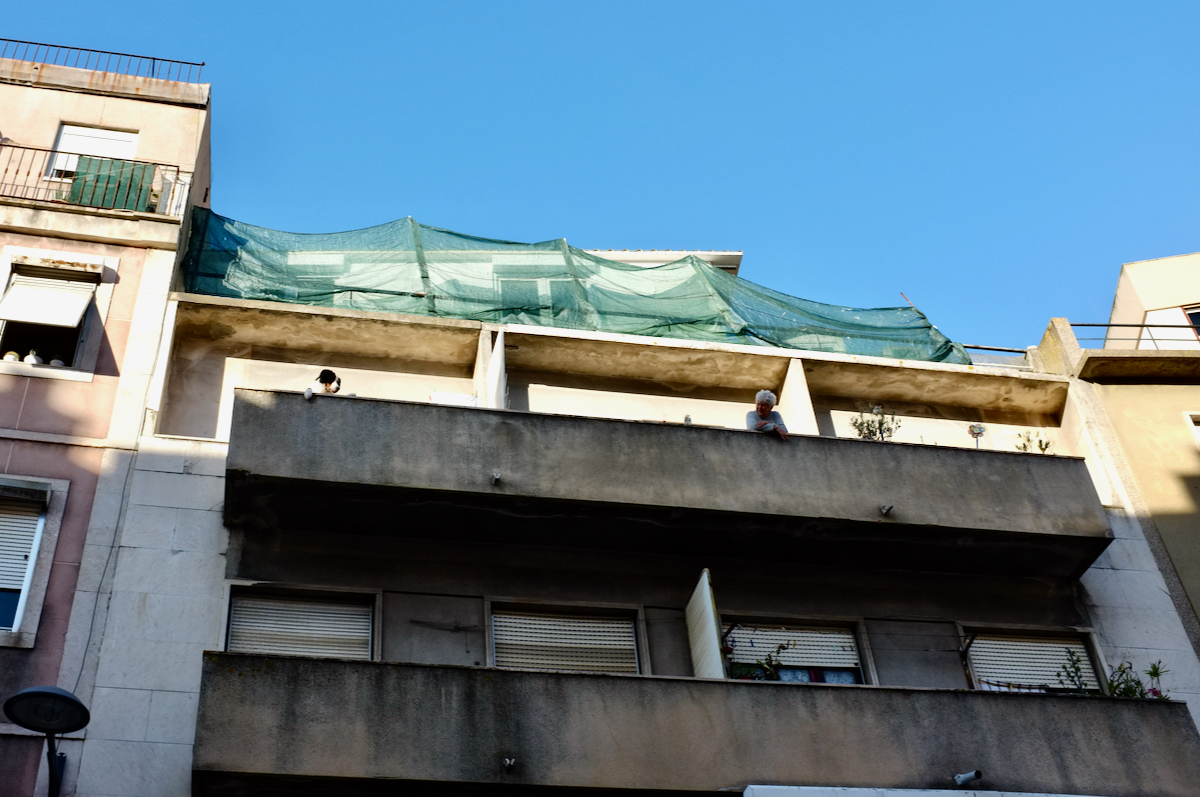

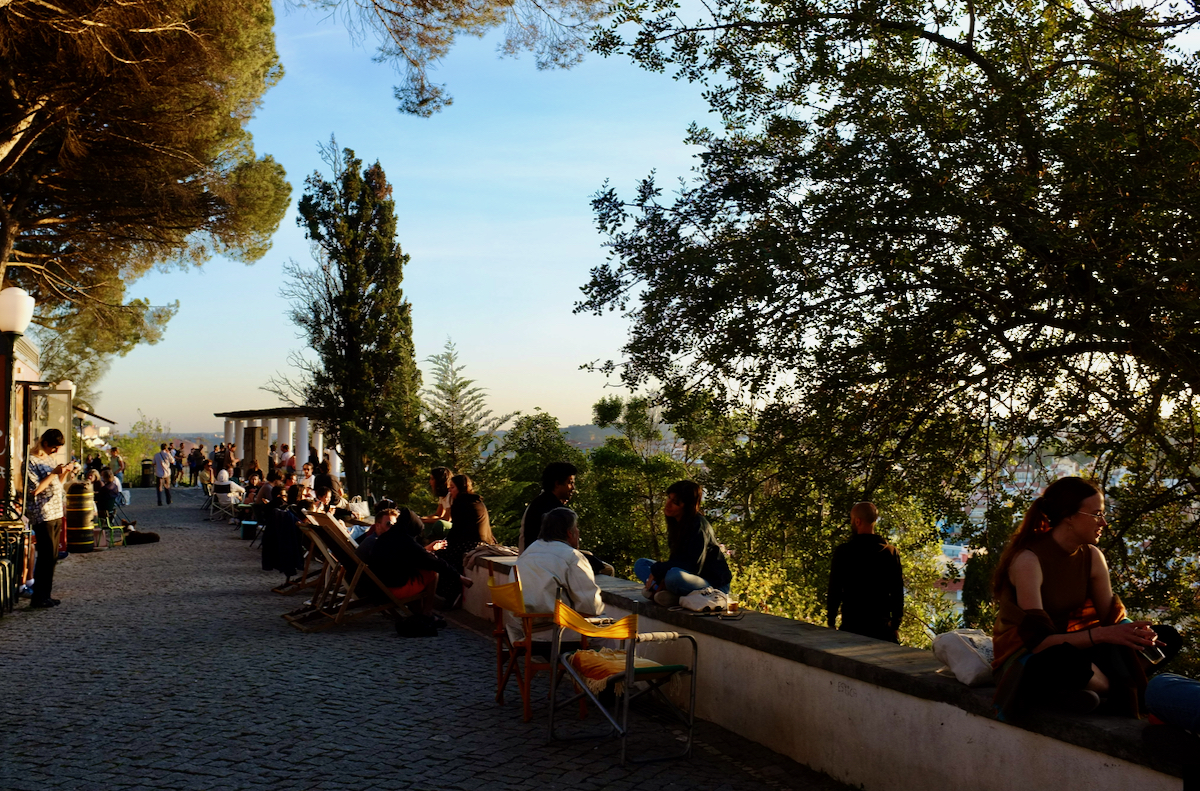
We spent today cleaning up our garden and planting some seeds that Susana kindly gave us last weekend — tomatoes, butternut squash and zucchini — as well as some wildflowers and cat grass. The cat that regularly visits us watched us intently as we worked. Later in the afternoon, two new cats visited to investigate the changes too. We must be doing something right.
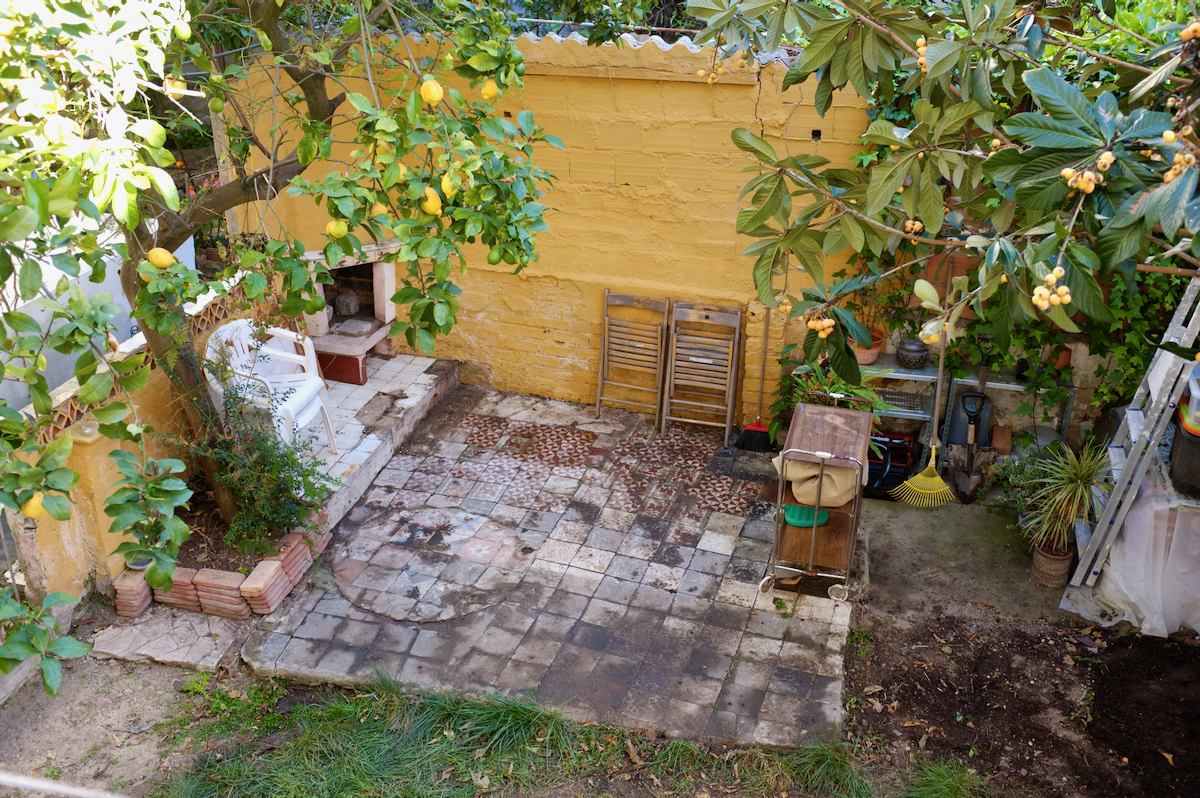
We’ve worked out (also thanks to Susana) that the yellow fruit is a loquat (nêspera is Portuguese). They taste very sweet and somewhat like apricot. H picked some and made them into a jam — two parts loquat to one part sugar and one part water, with lemon juice, cayenne pepper and rosemary.
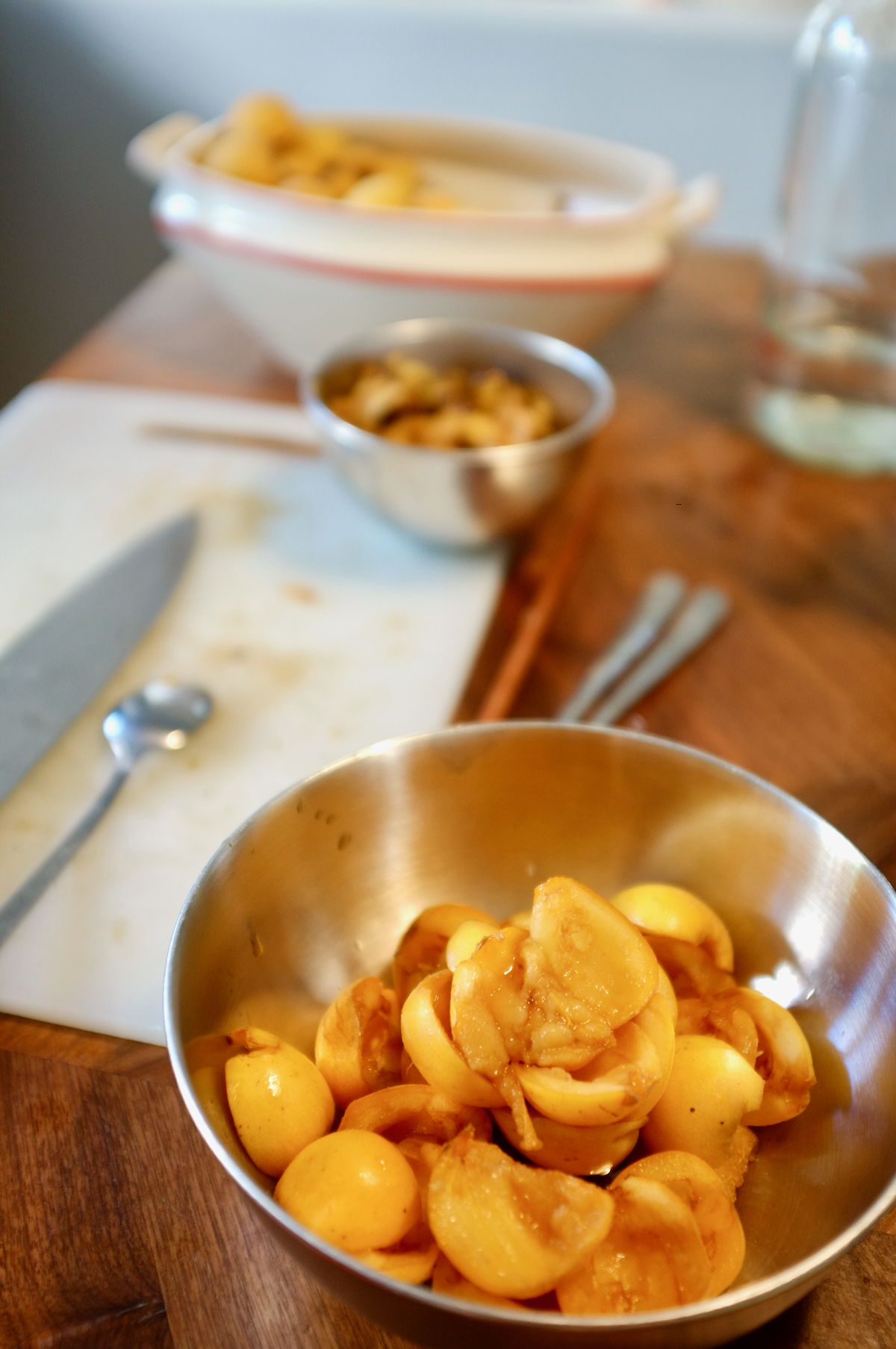
We also planted basil, mint, coriander, parsley and thyme in pots to sit on our kitchen bench.
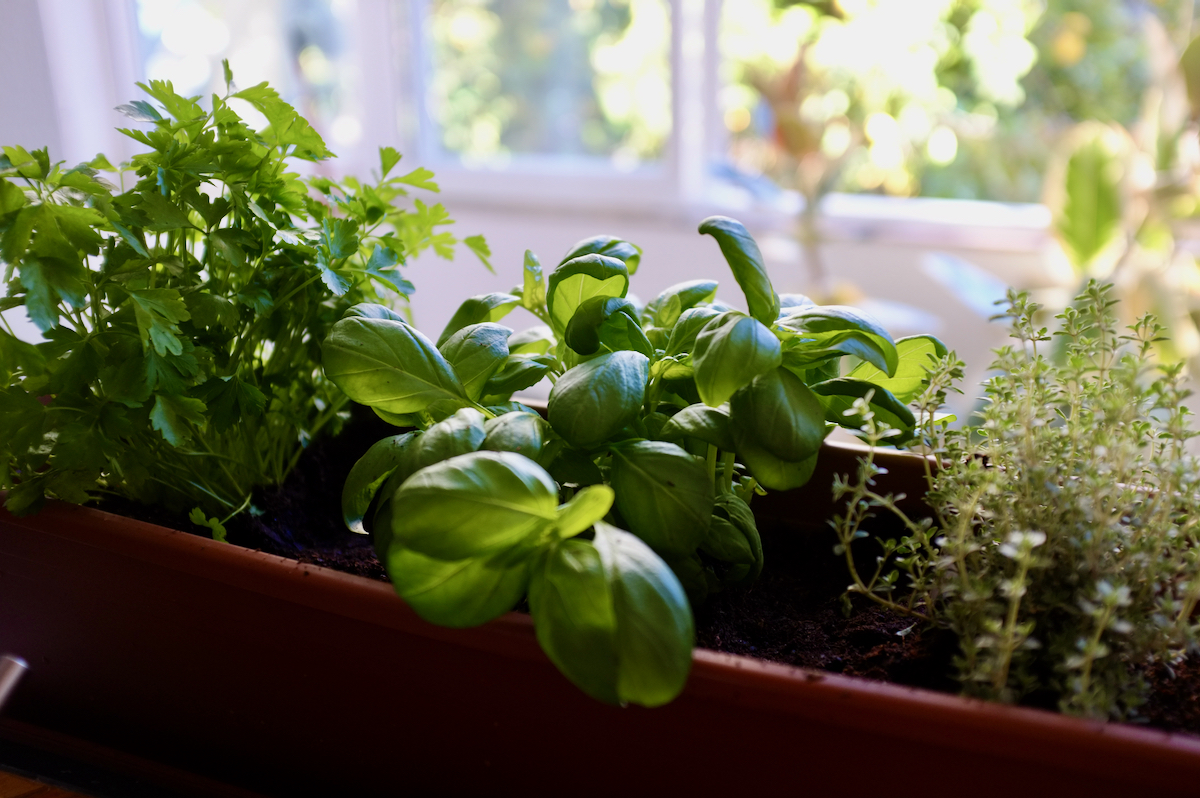
I love my riso-printed calendar by Lauren Doughty. Happy April!
